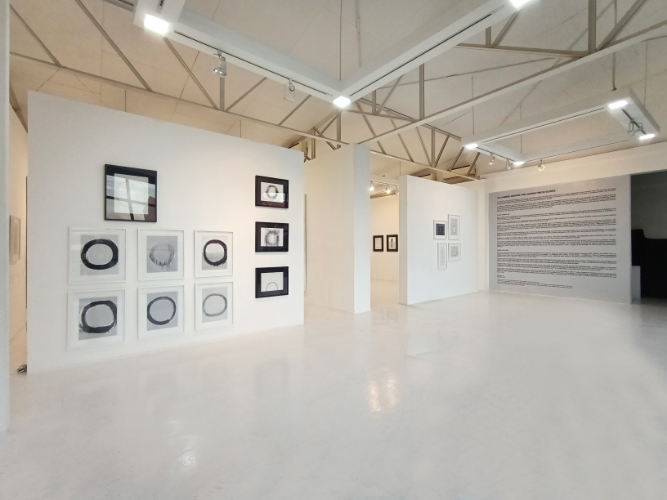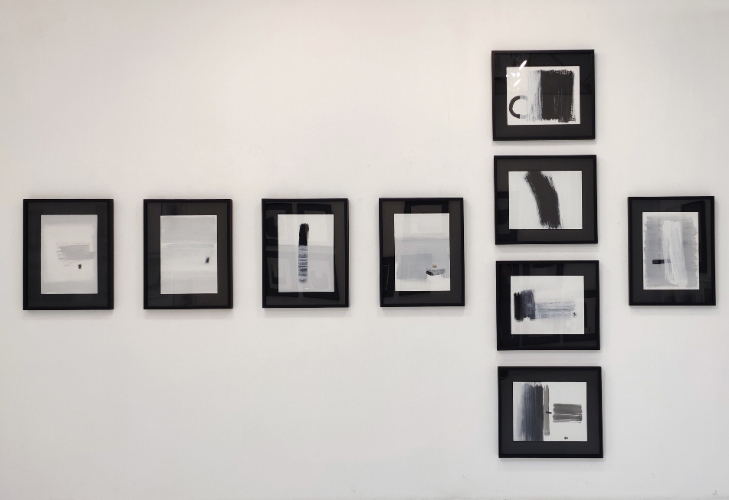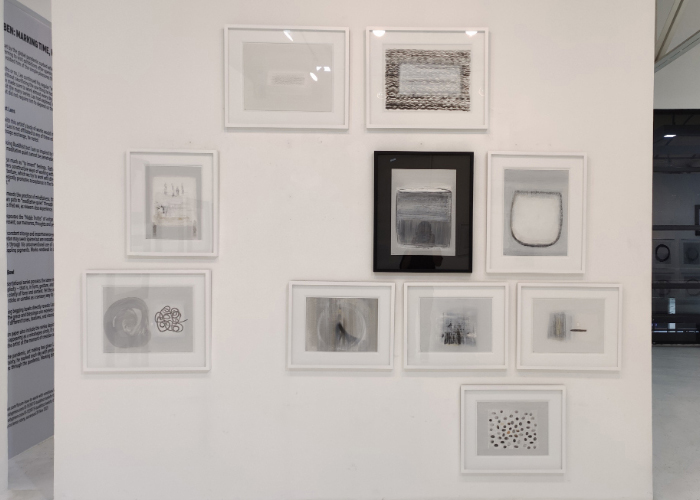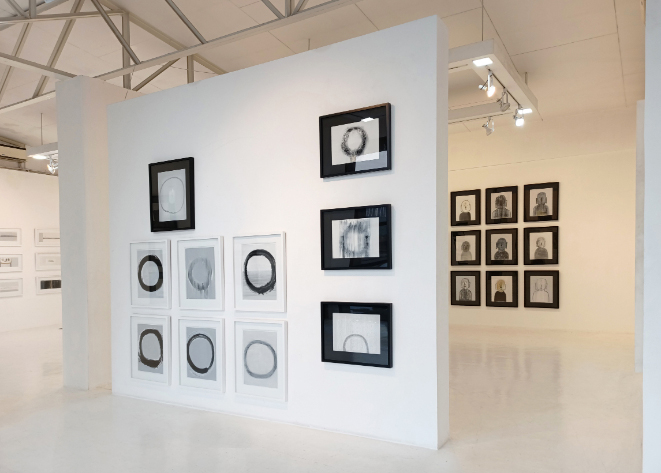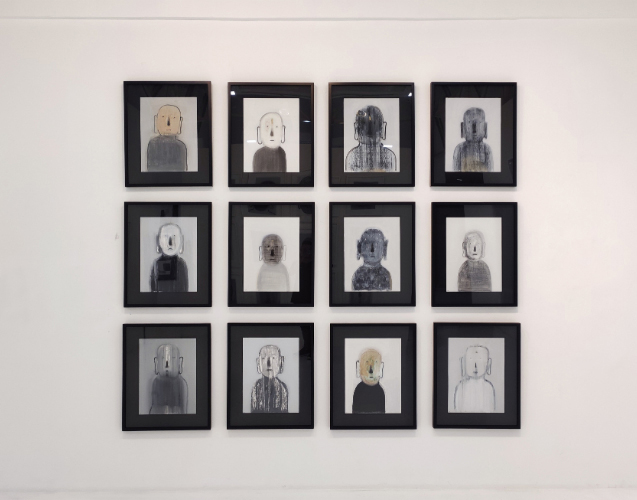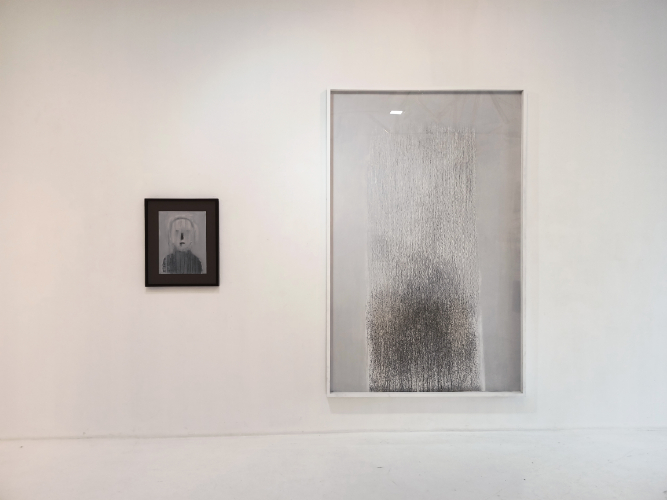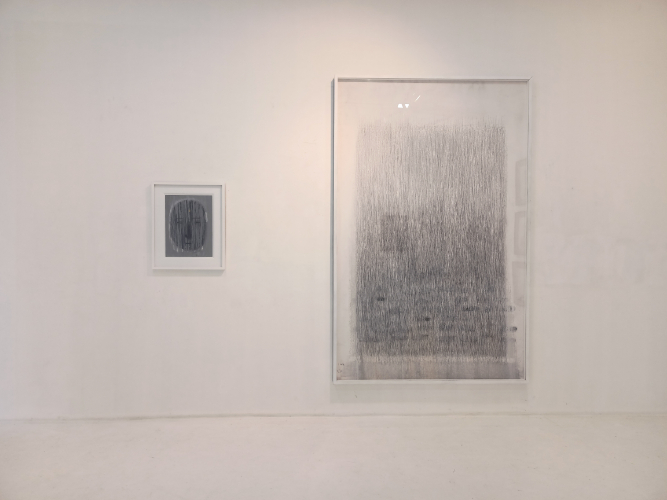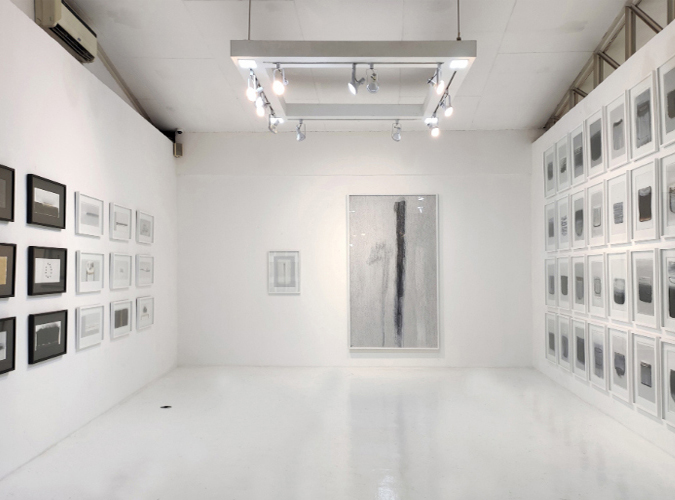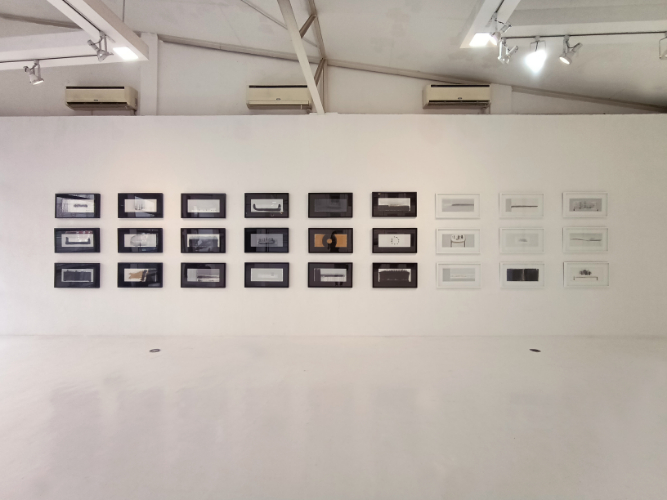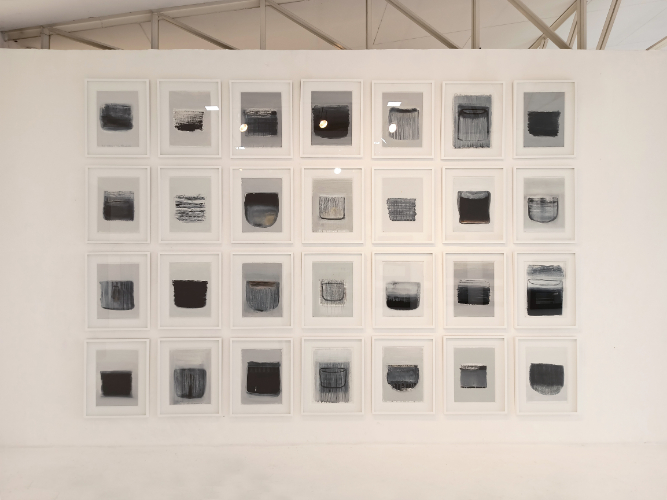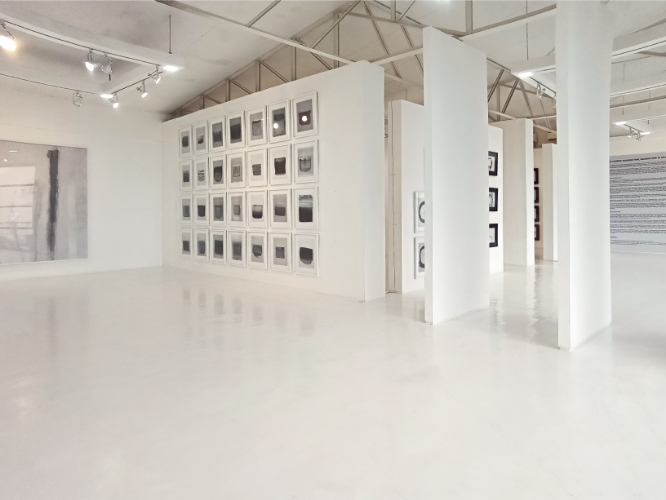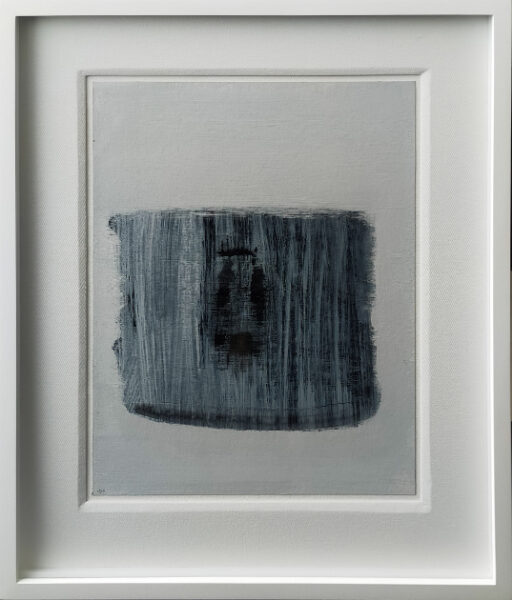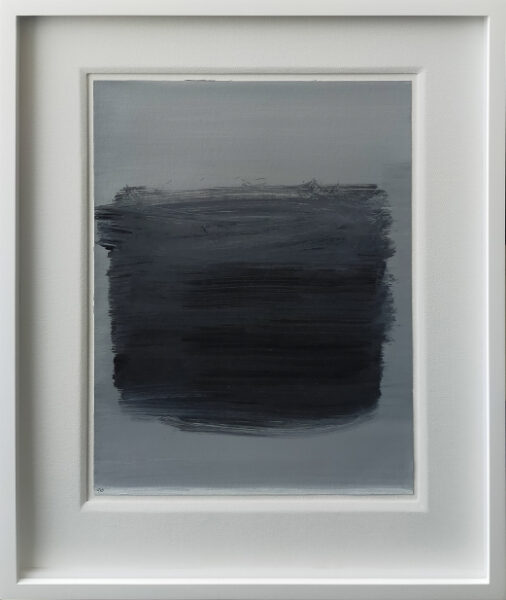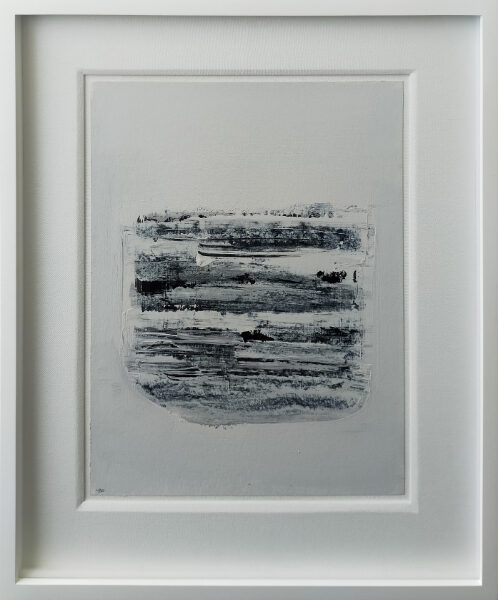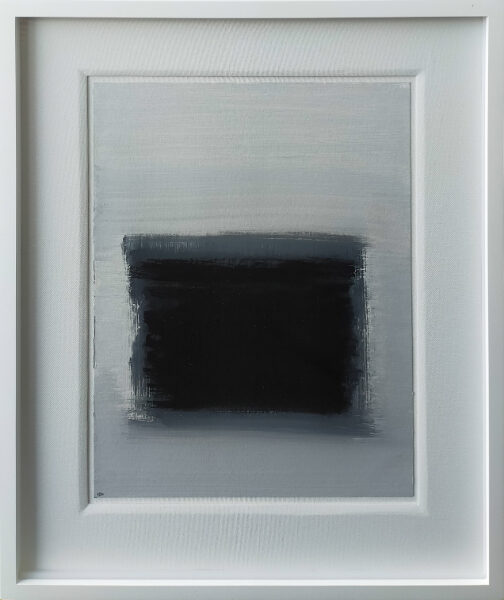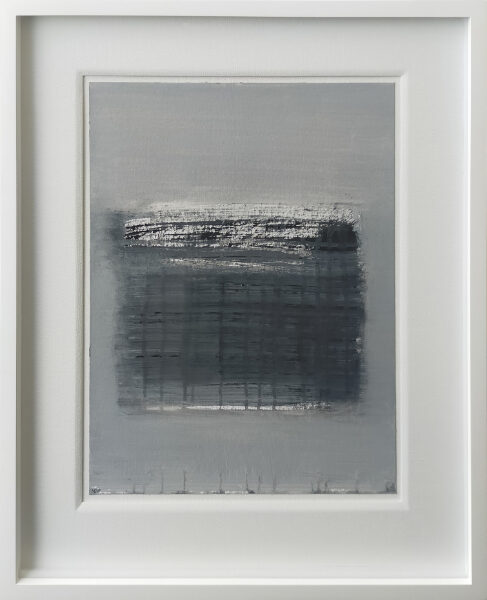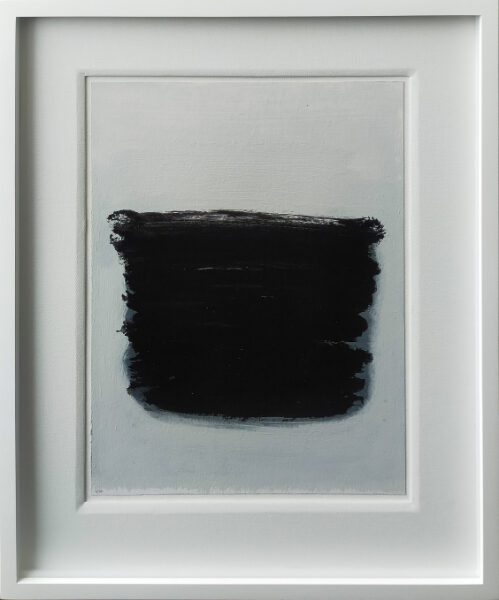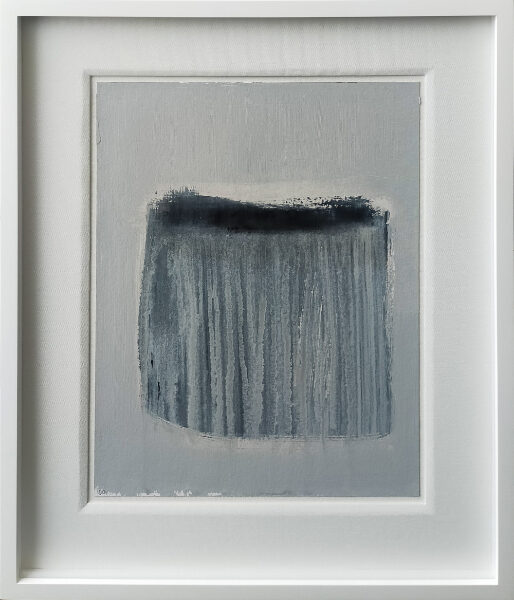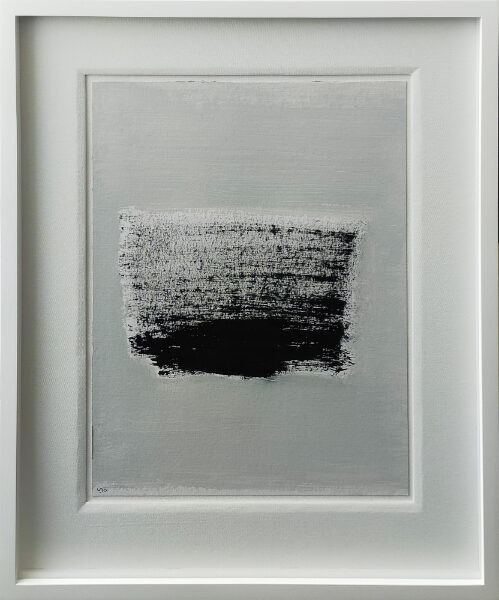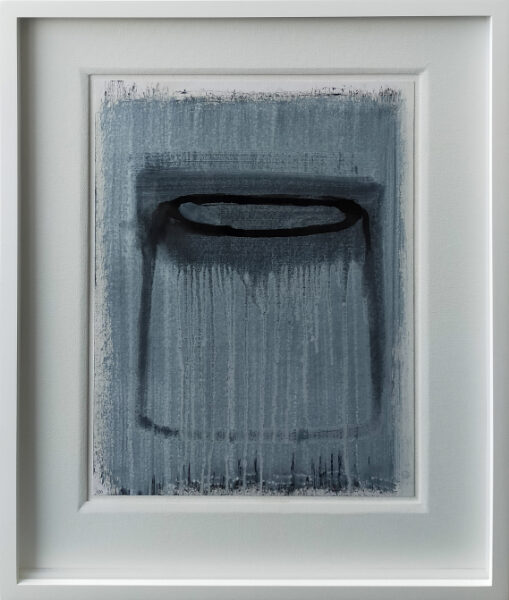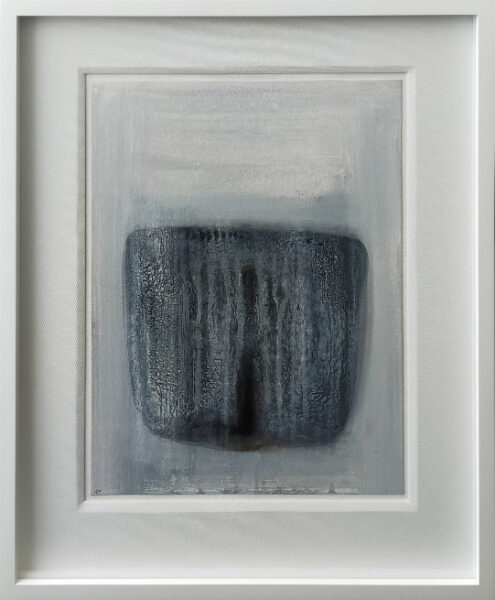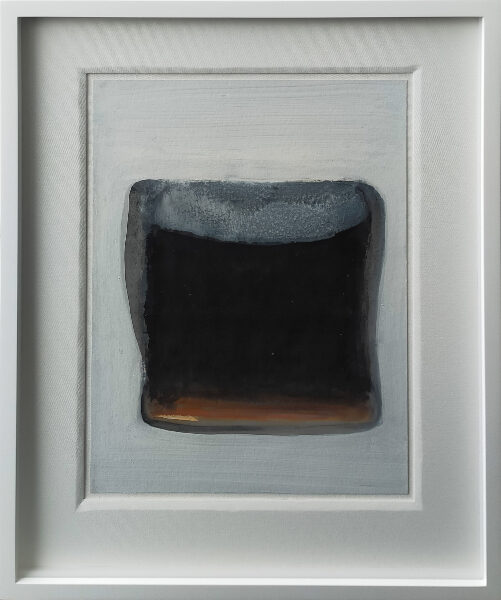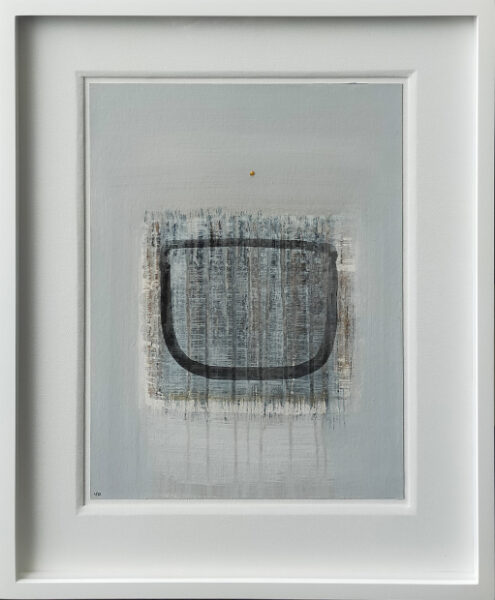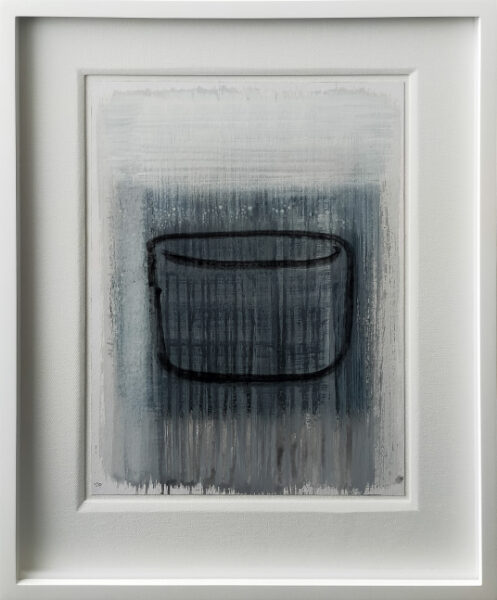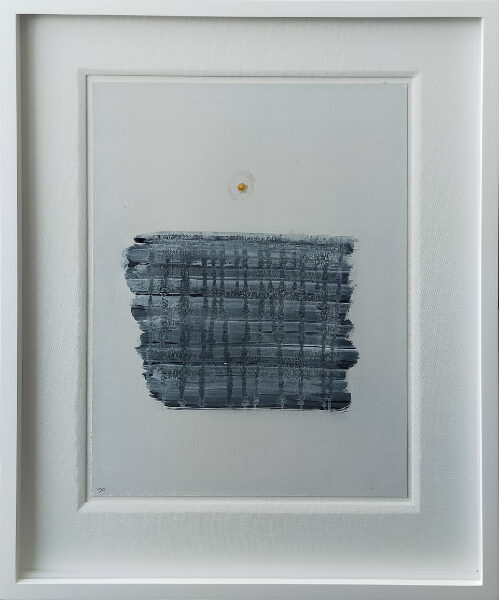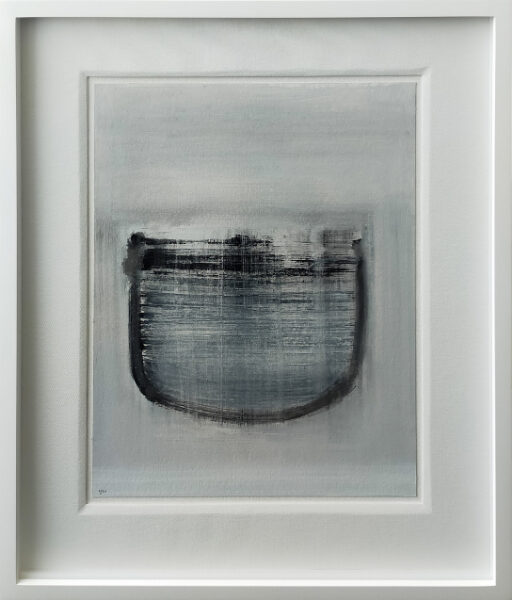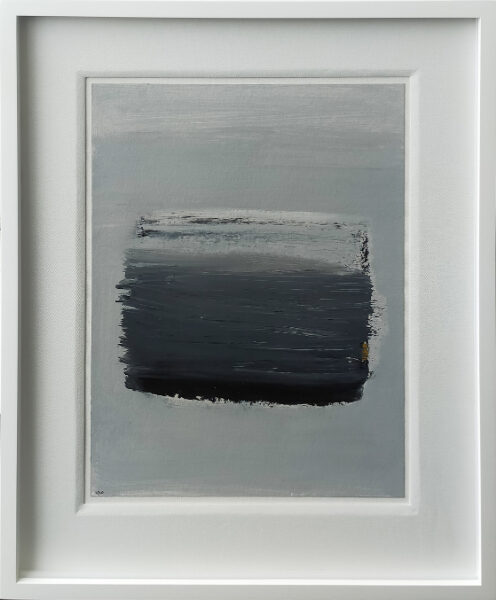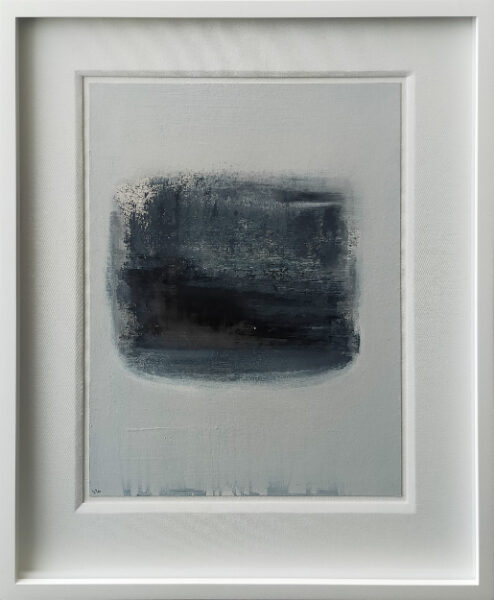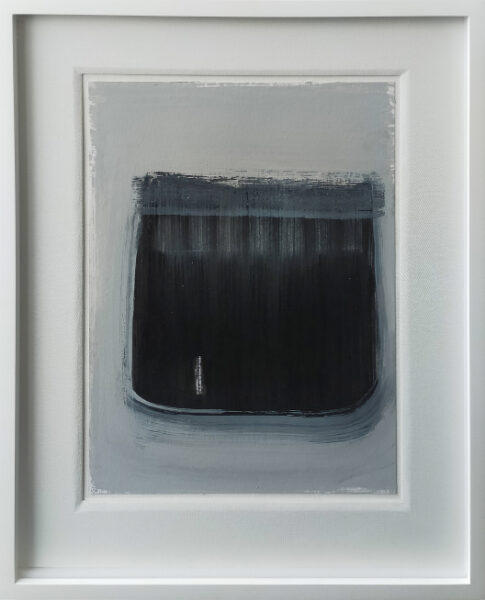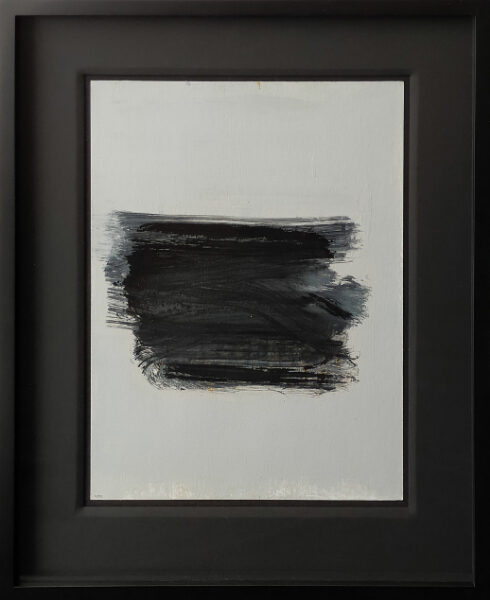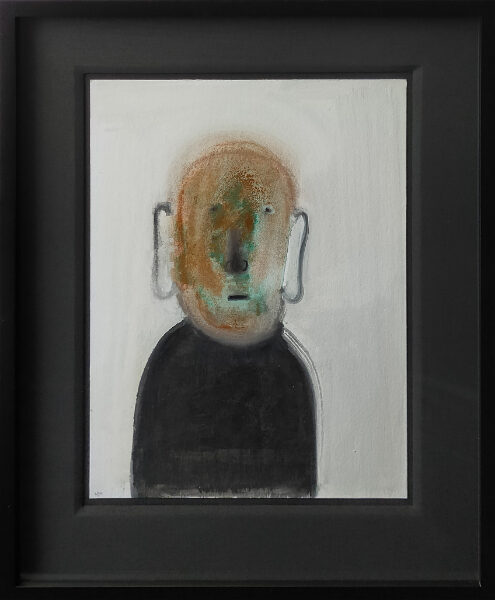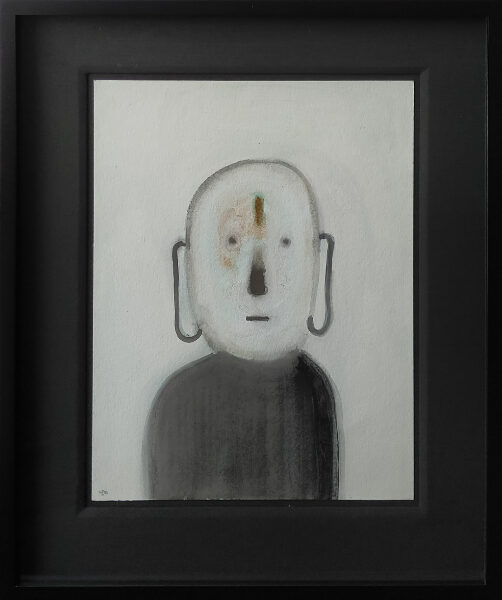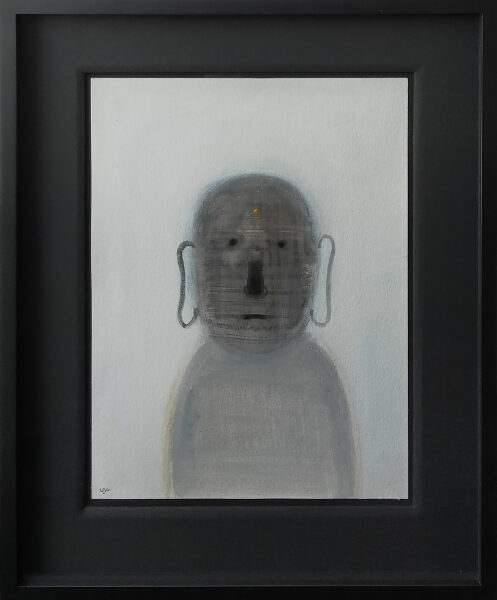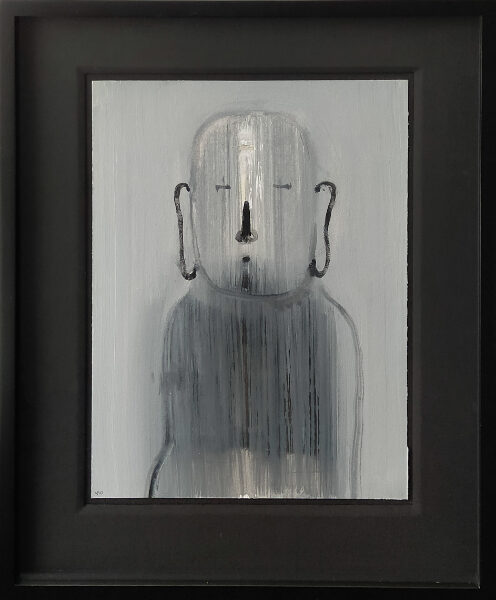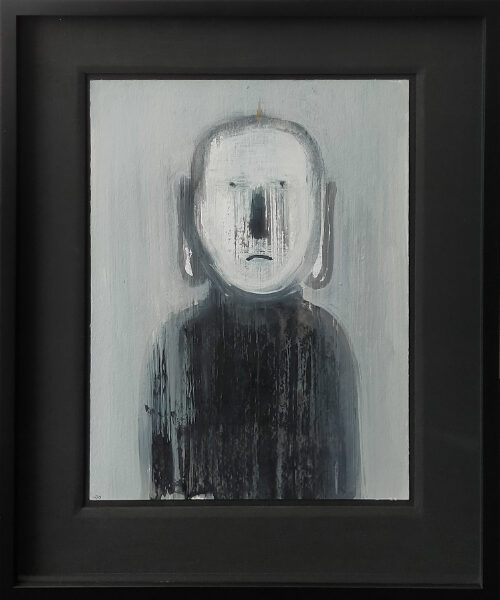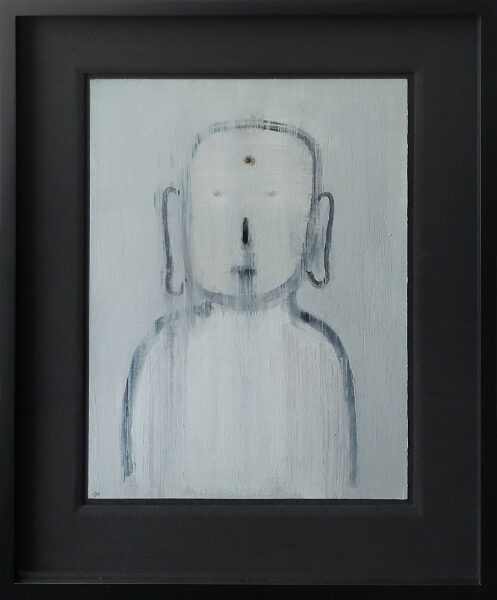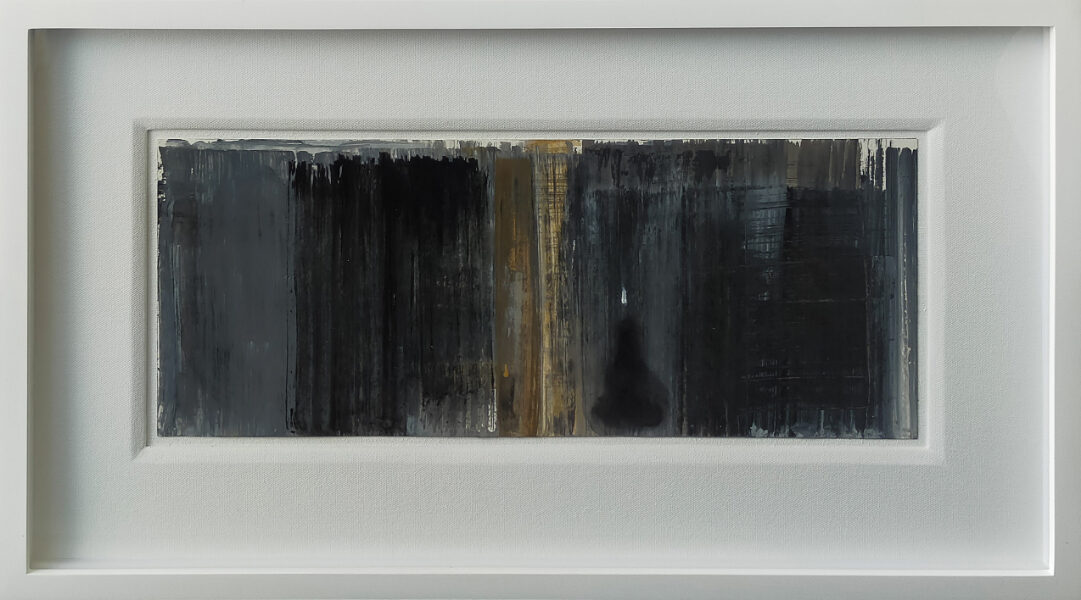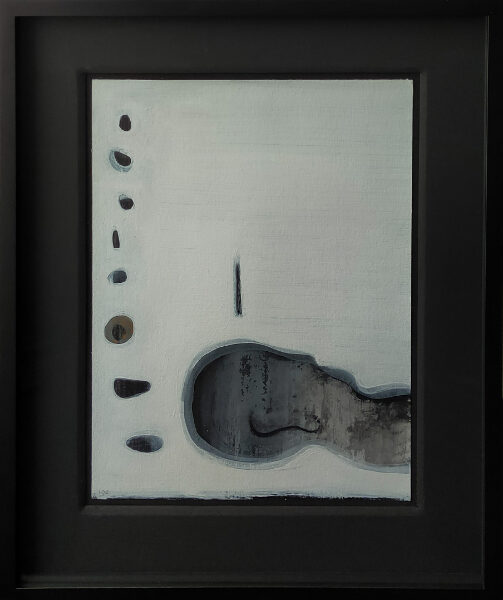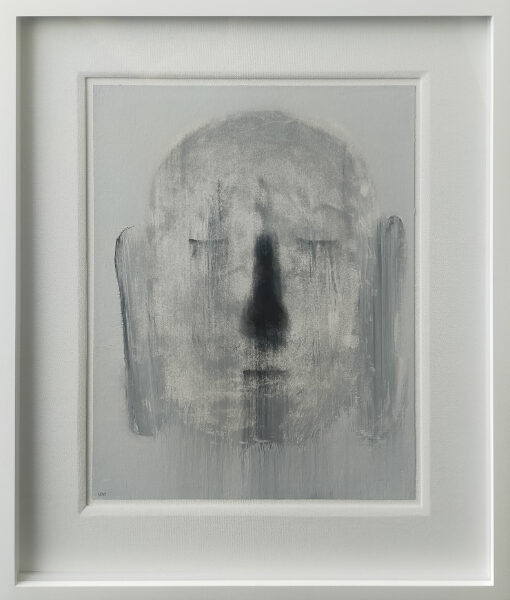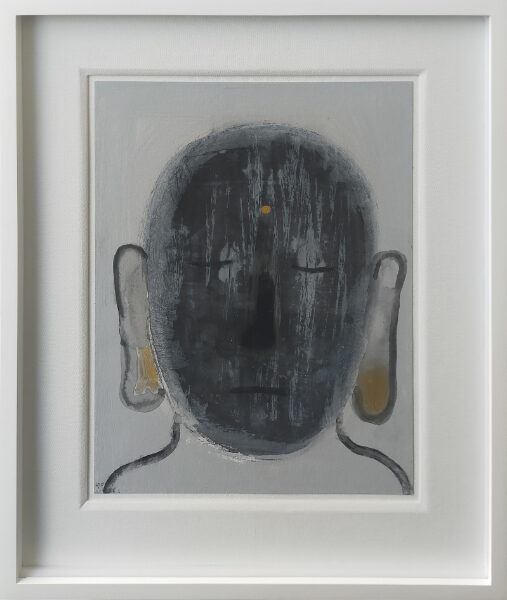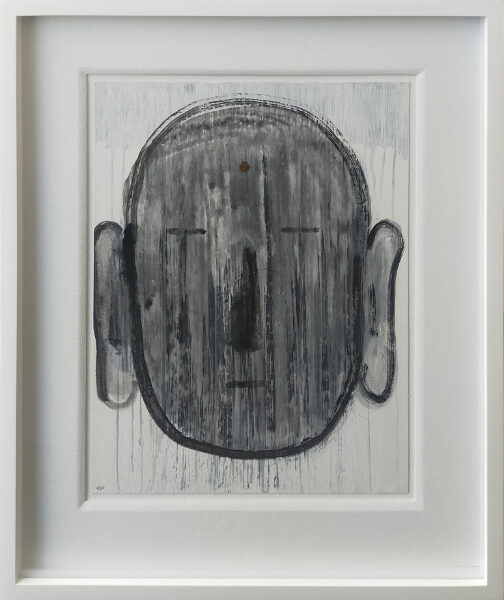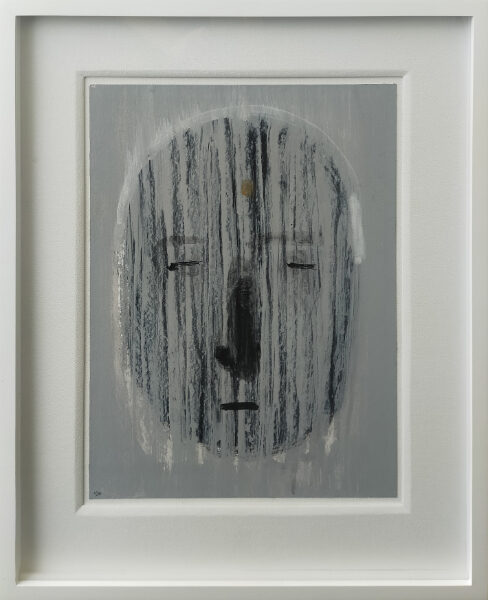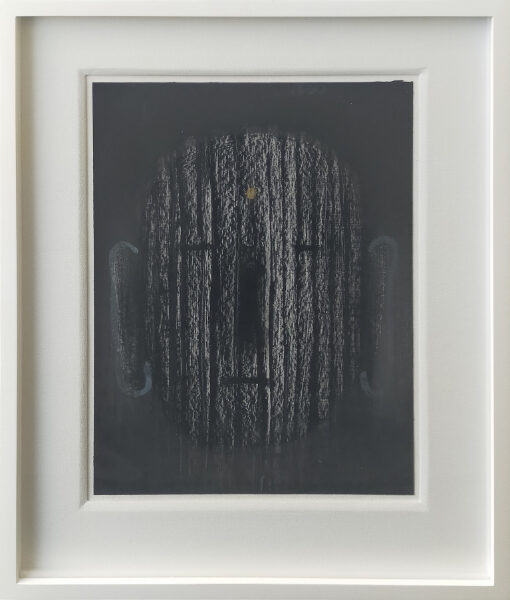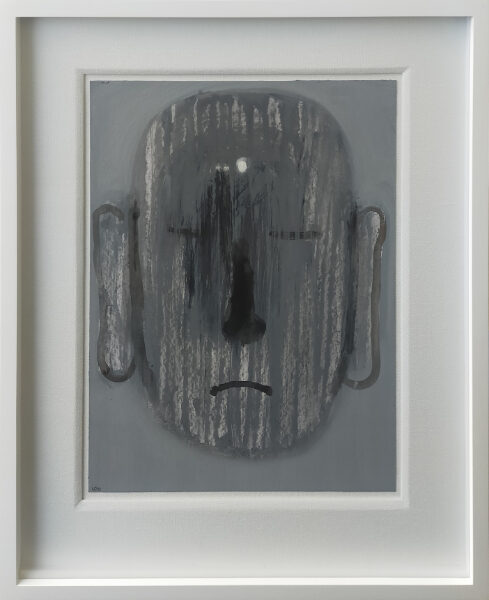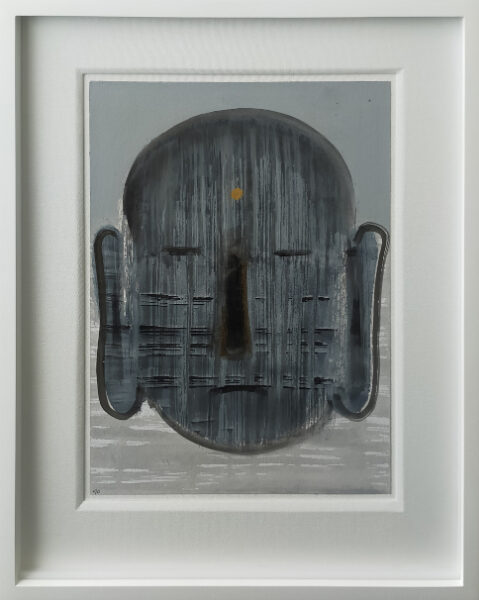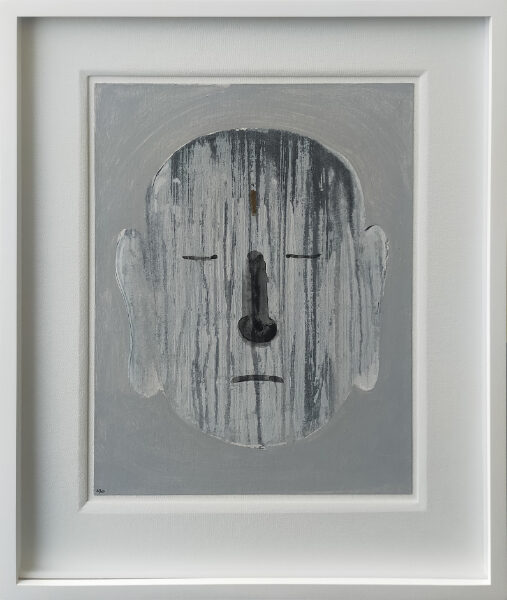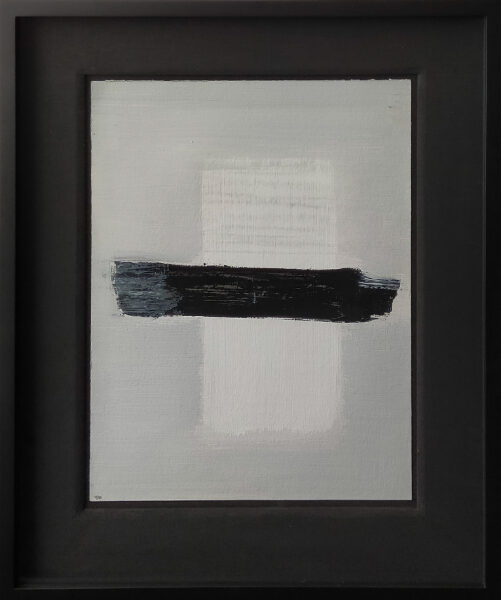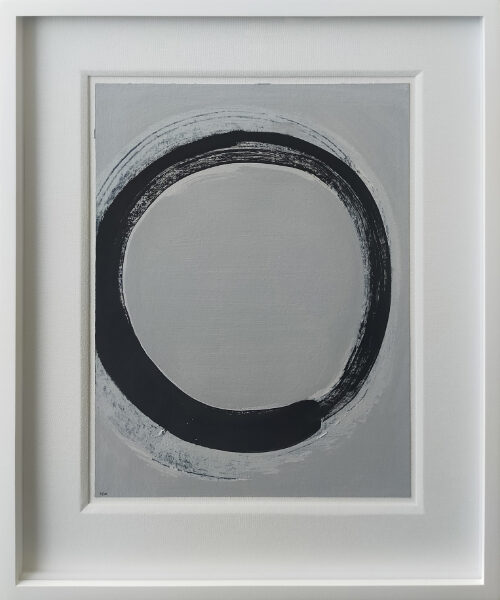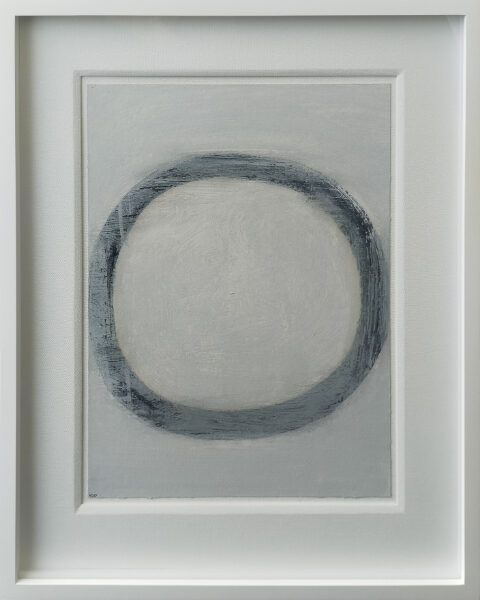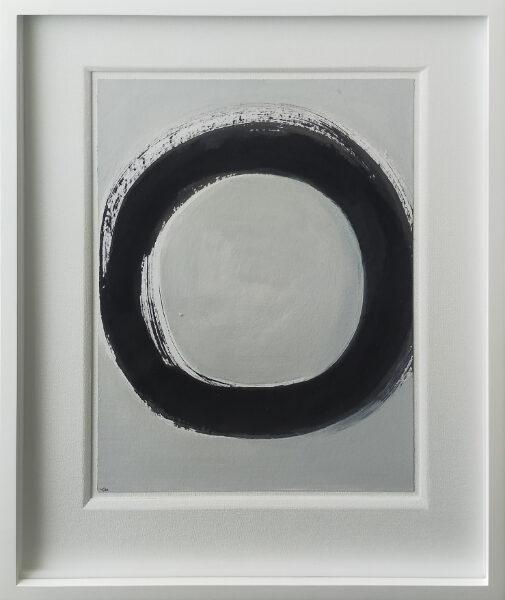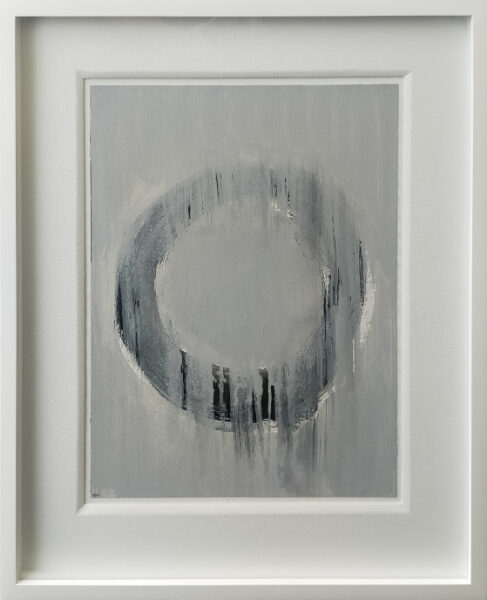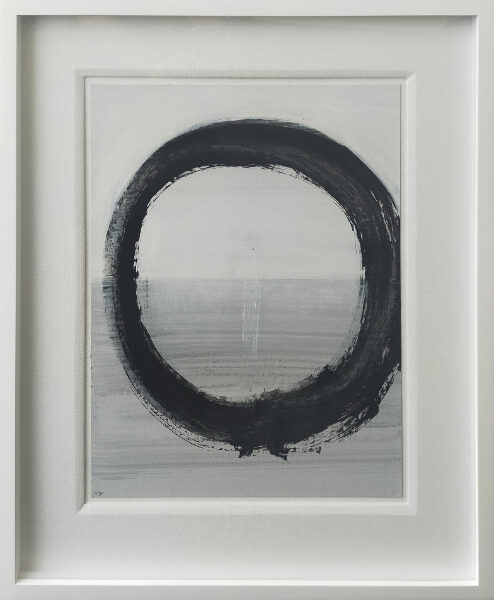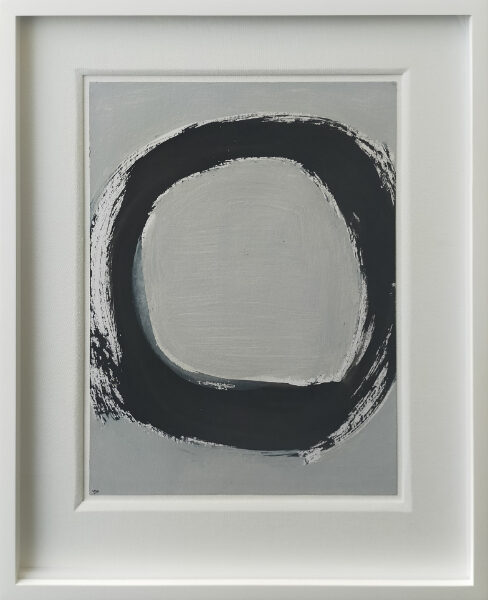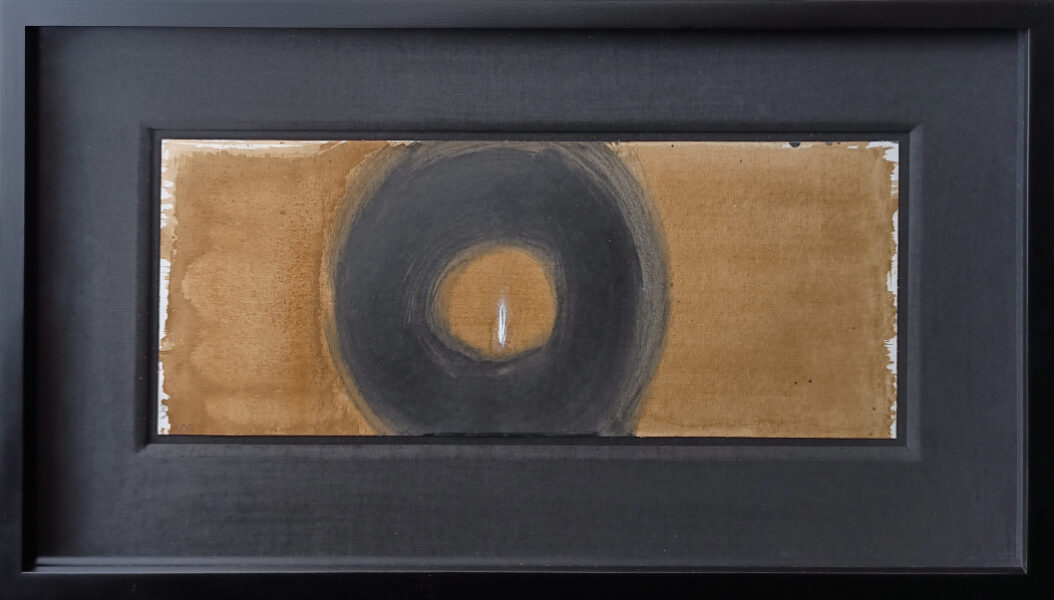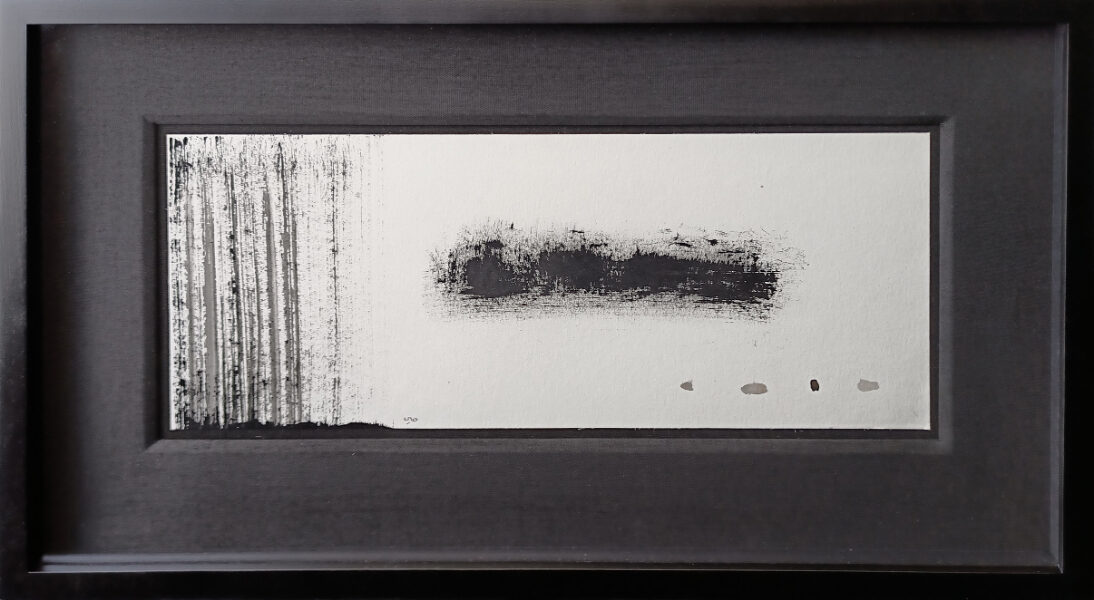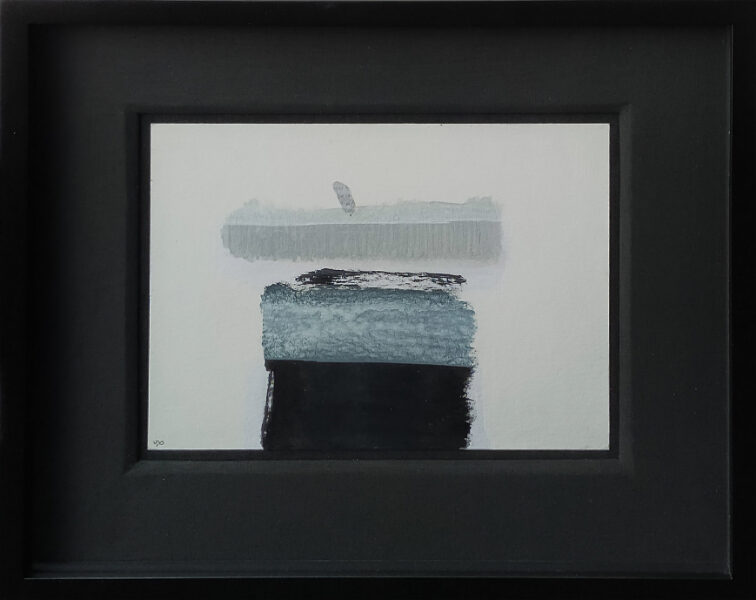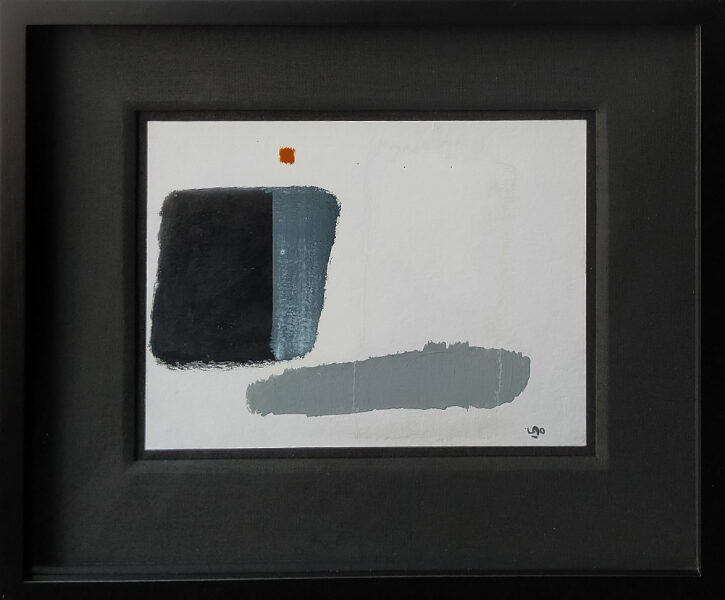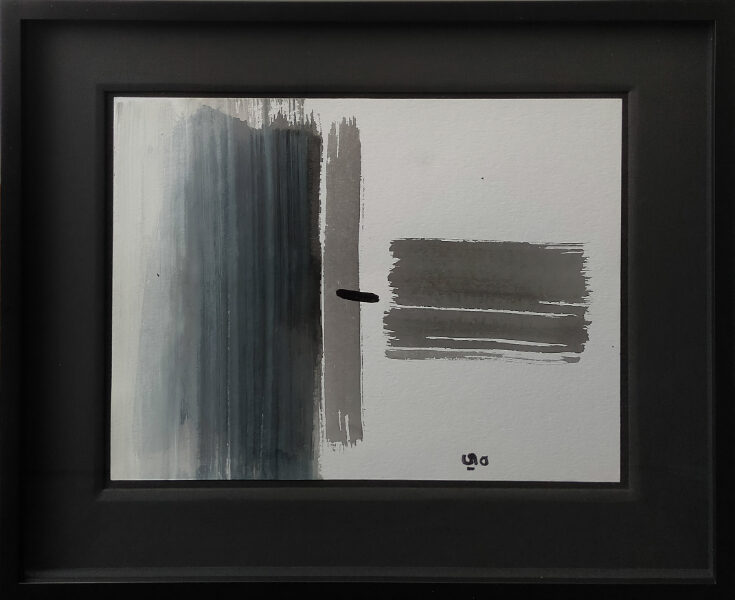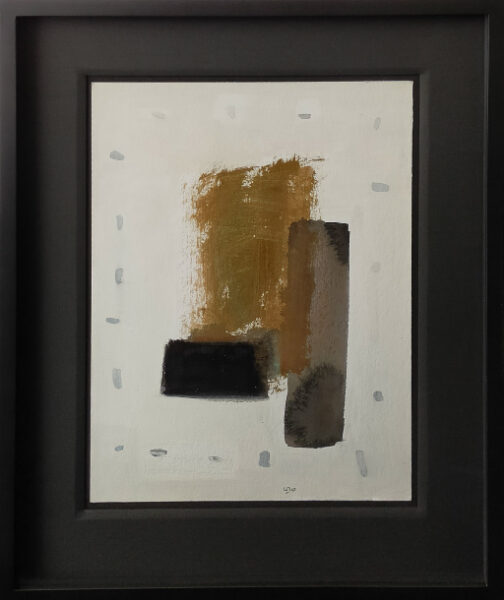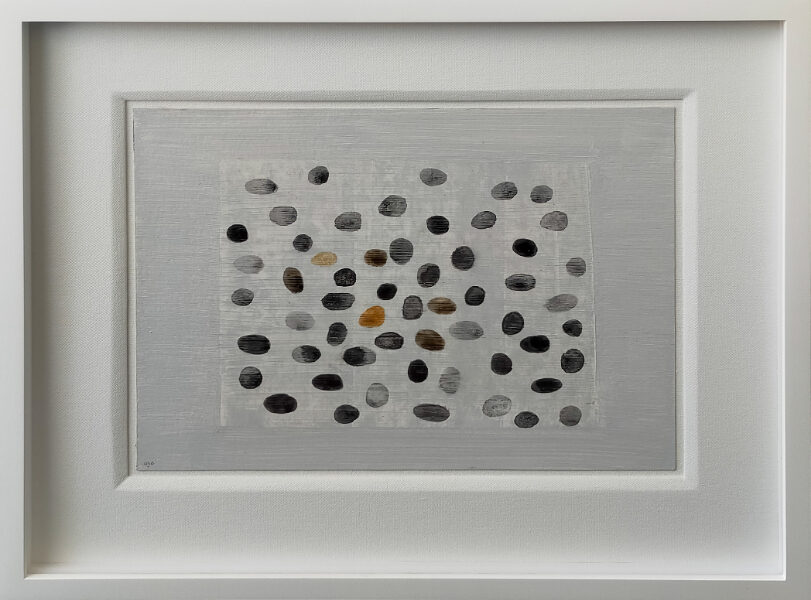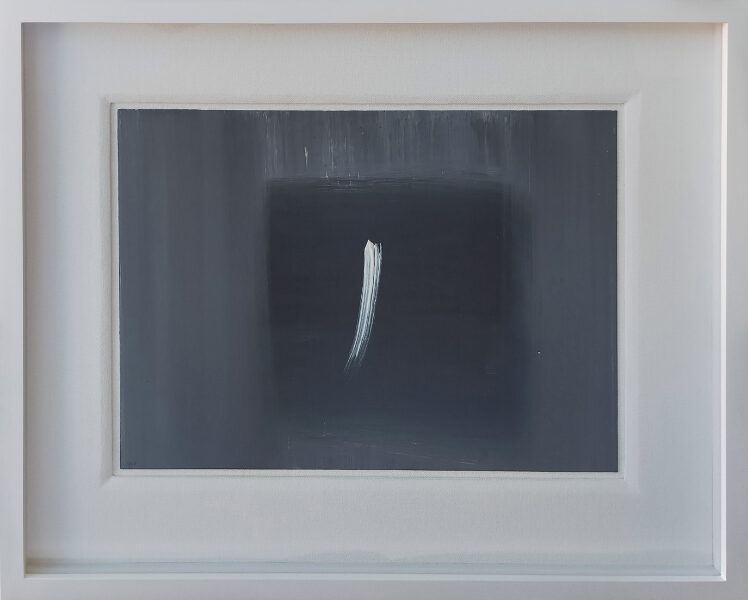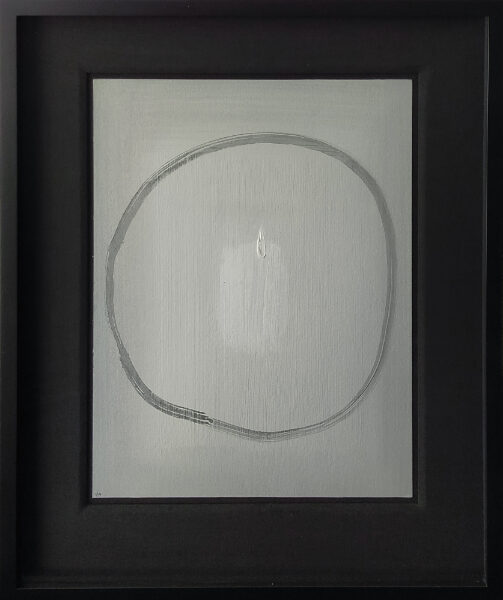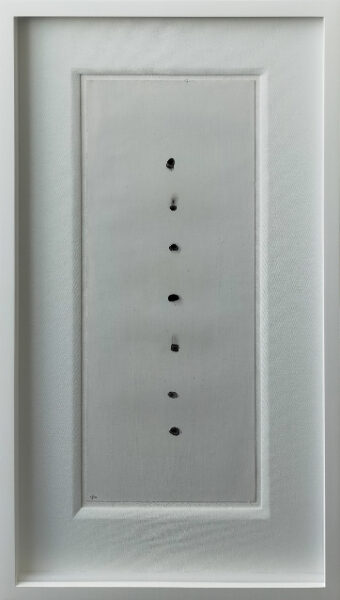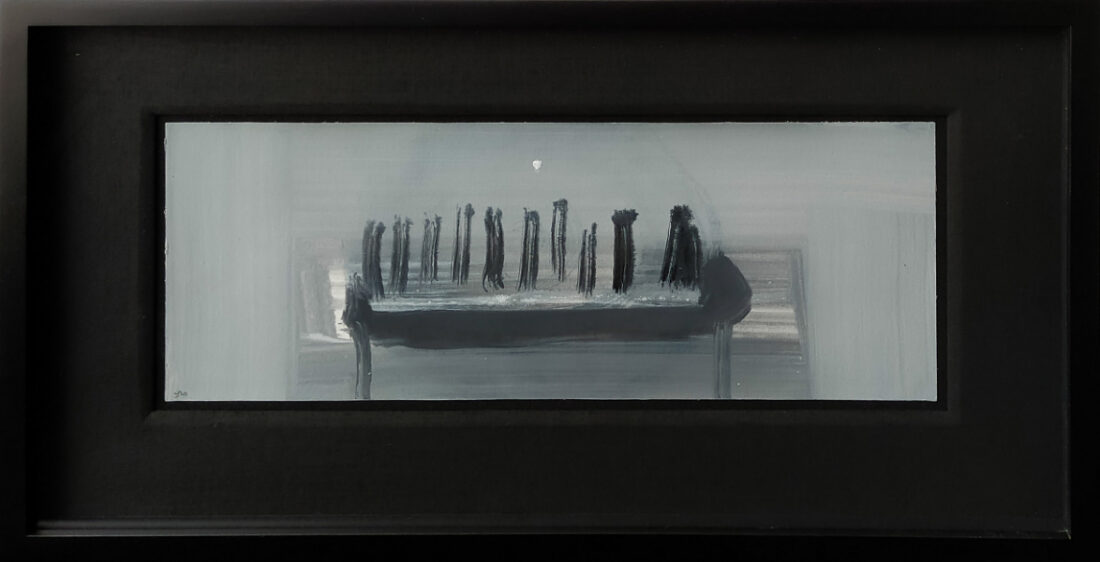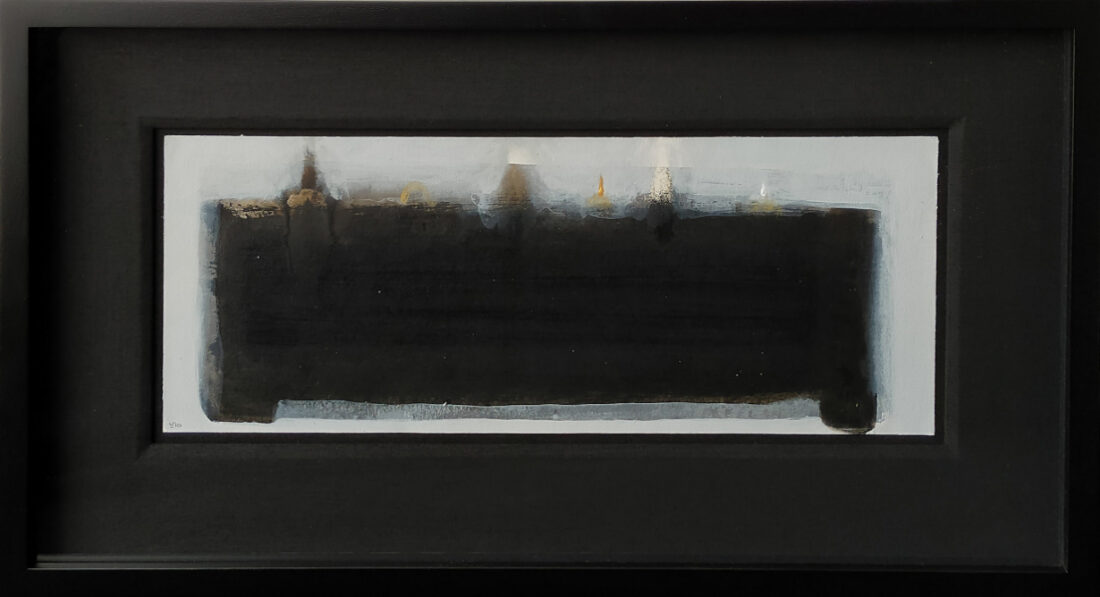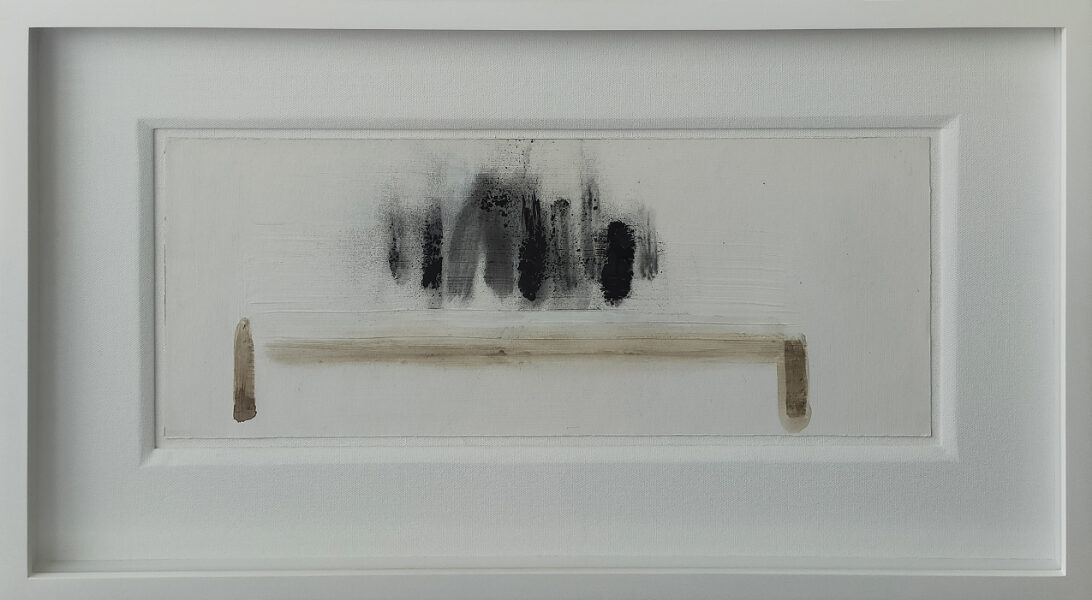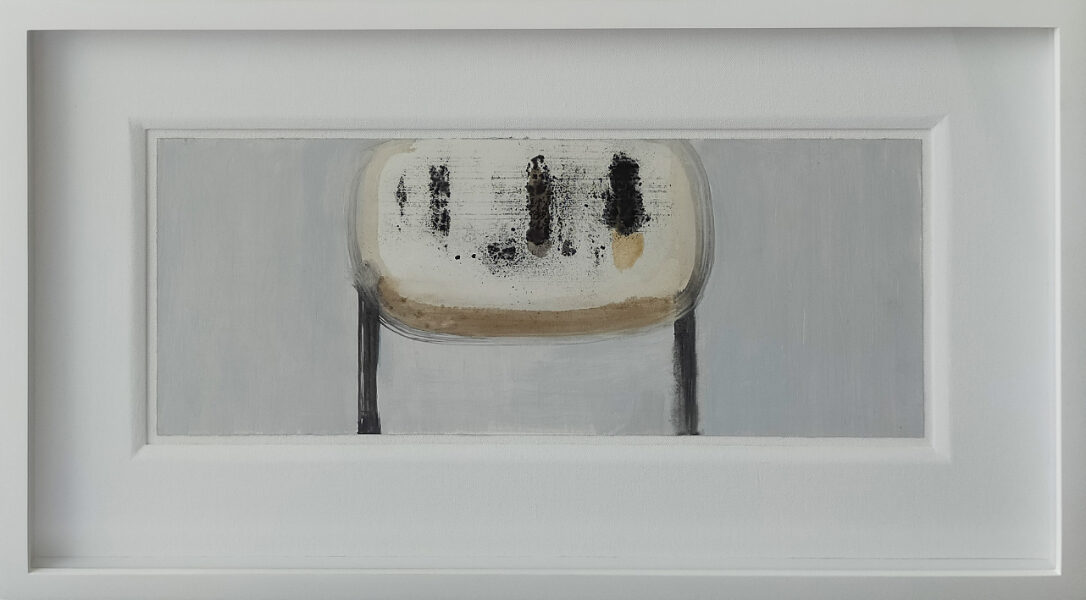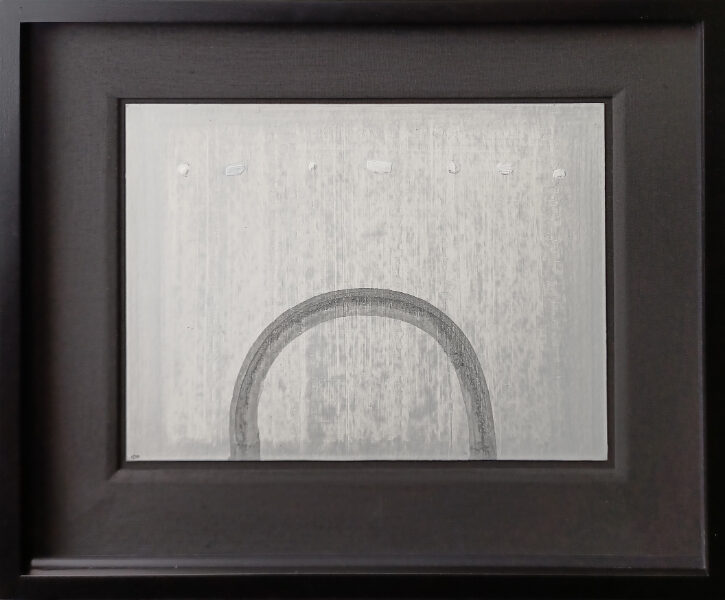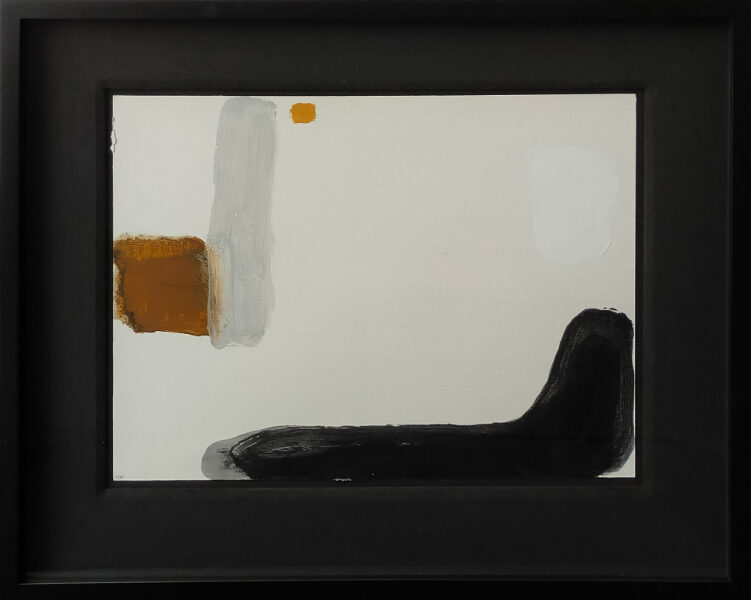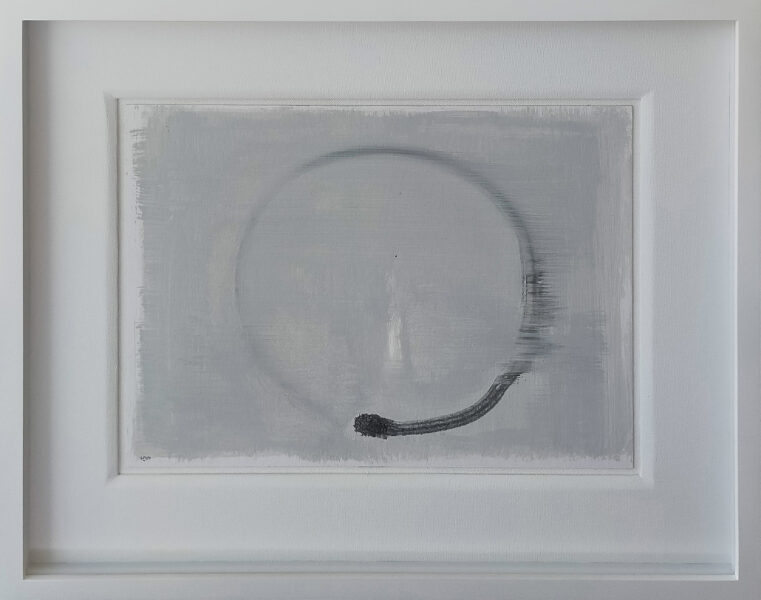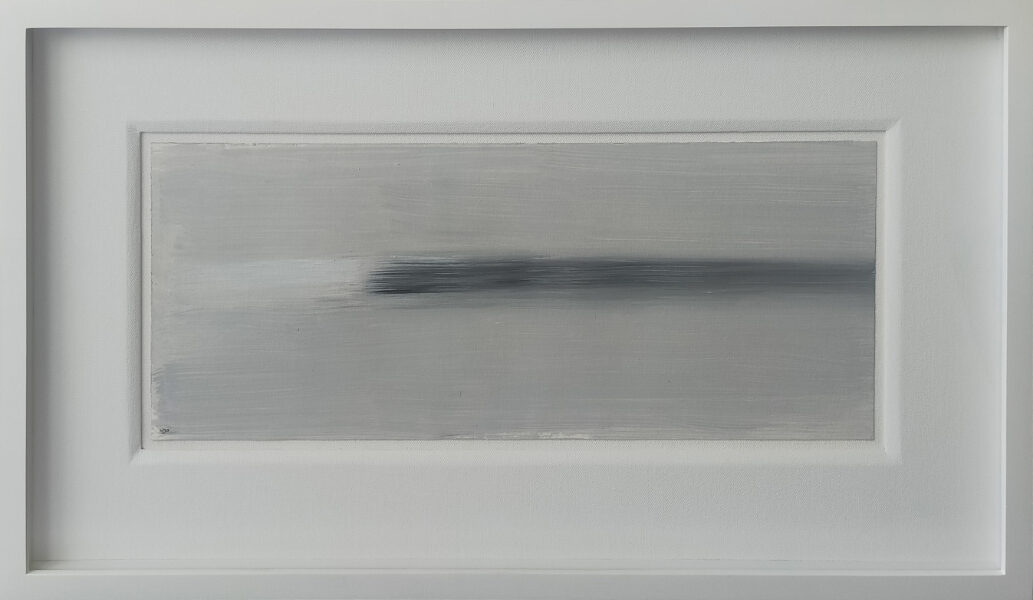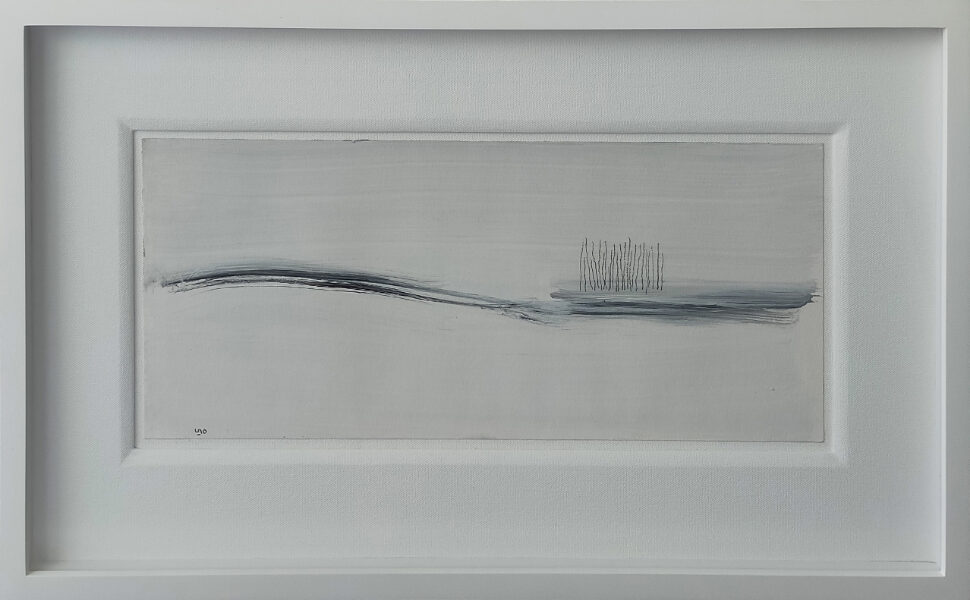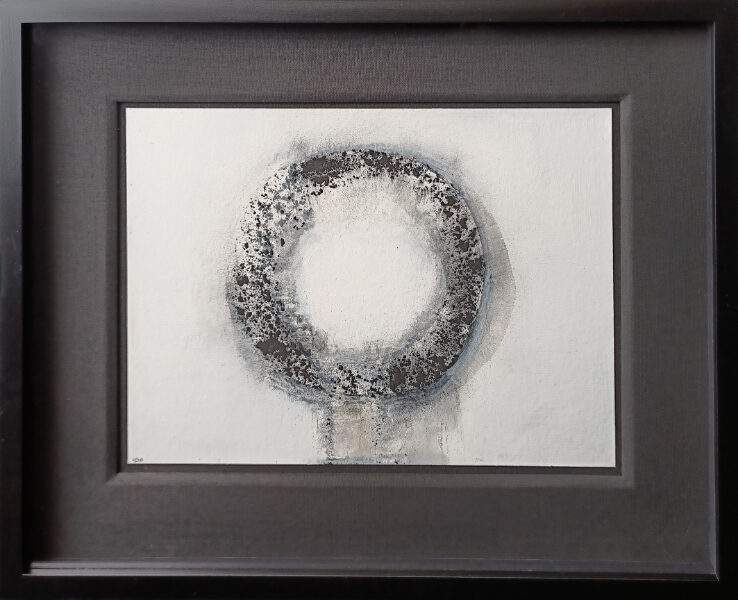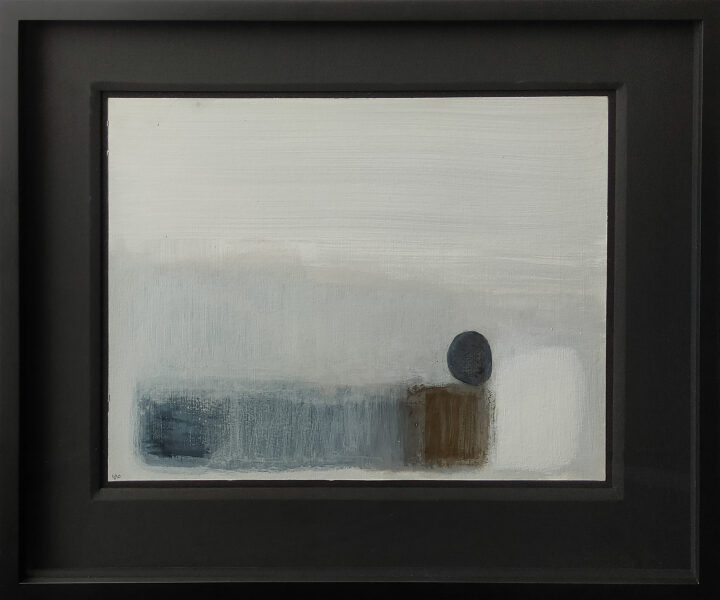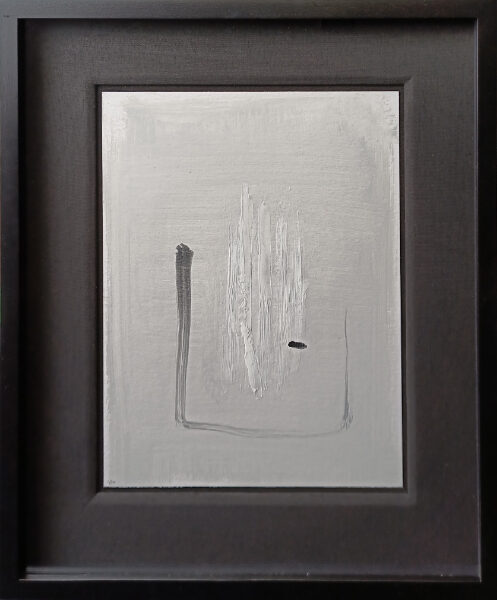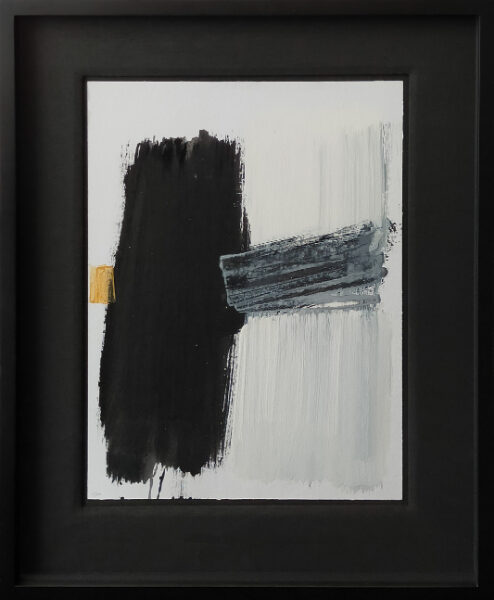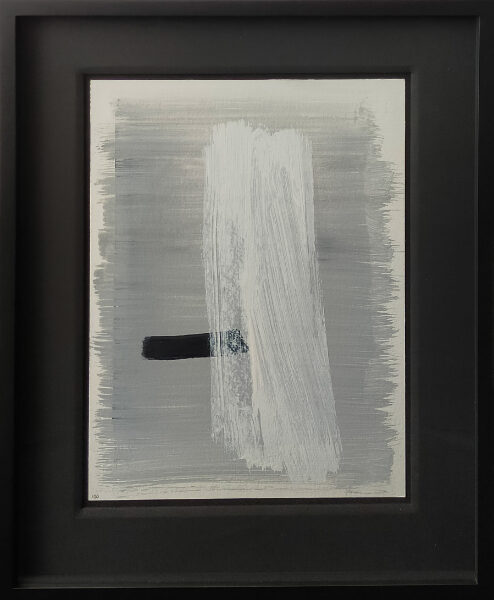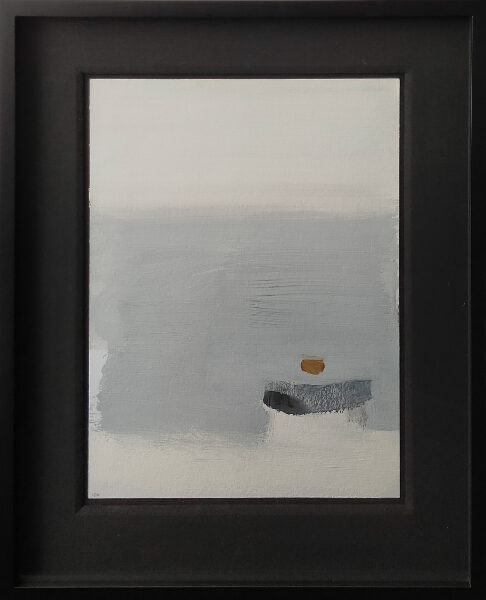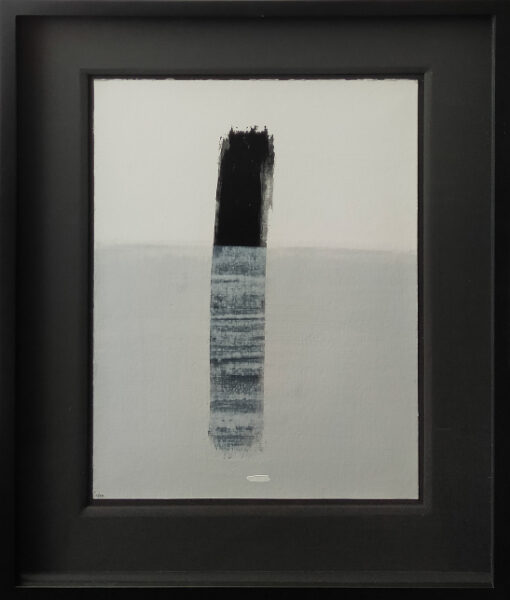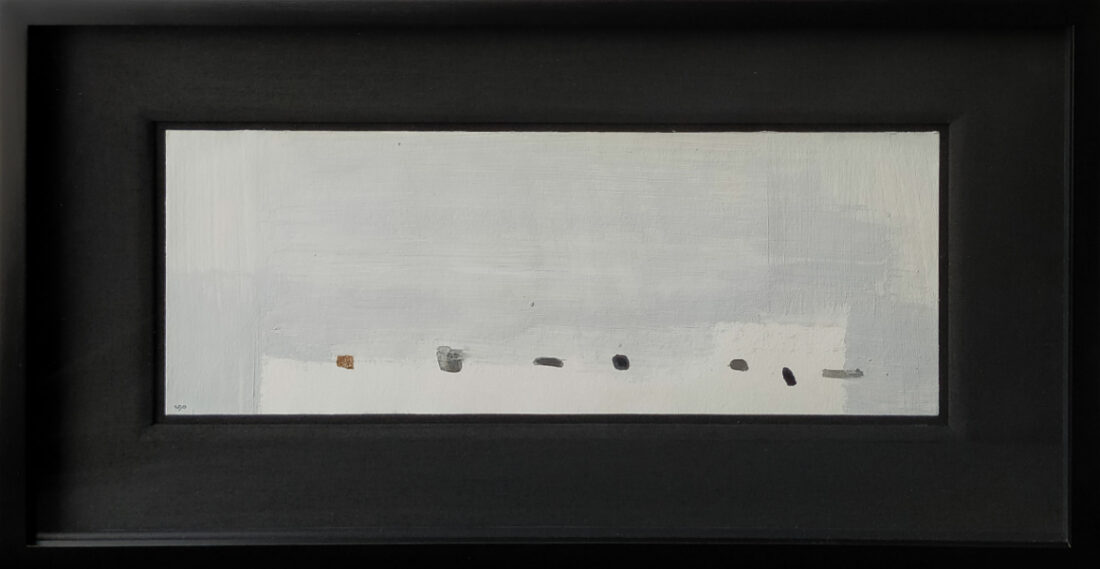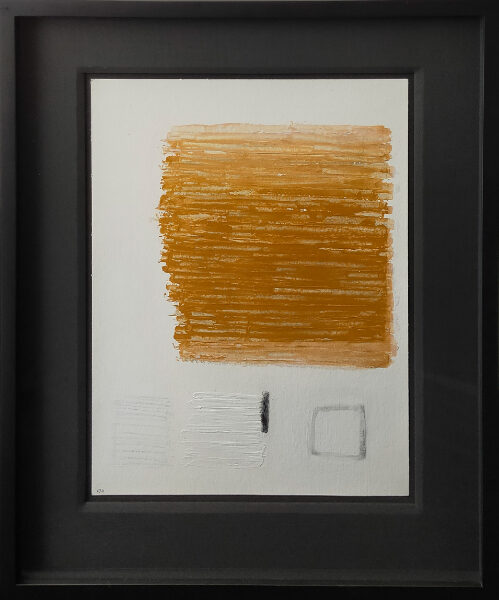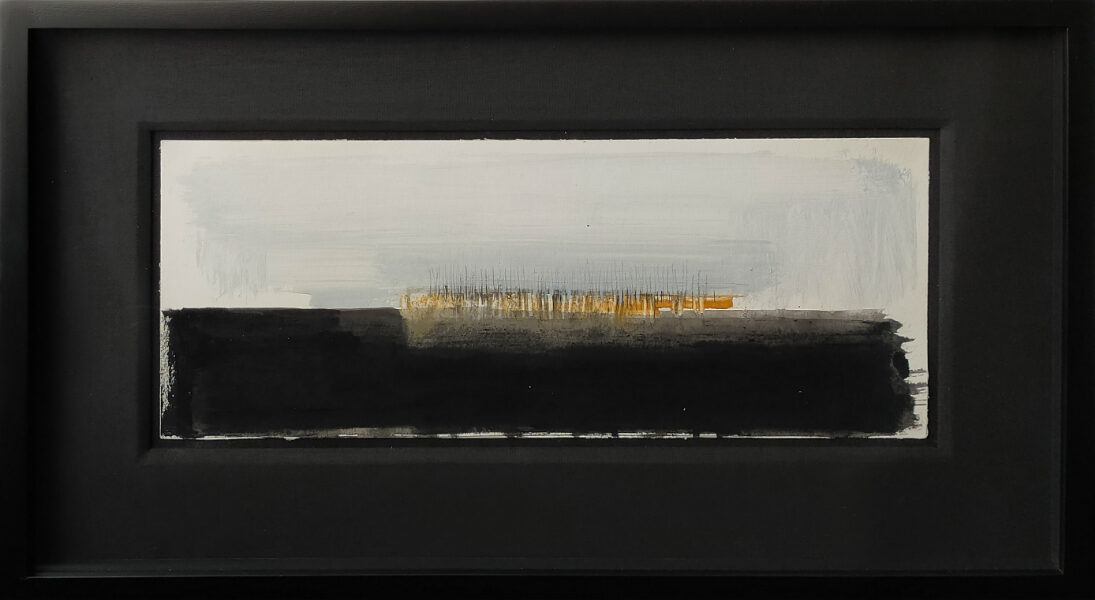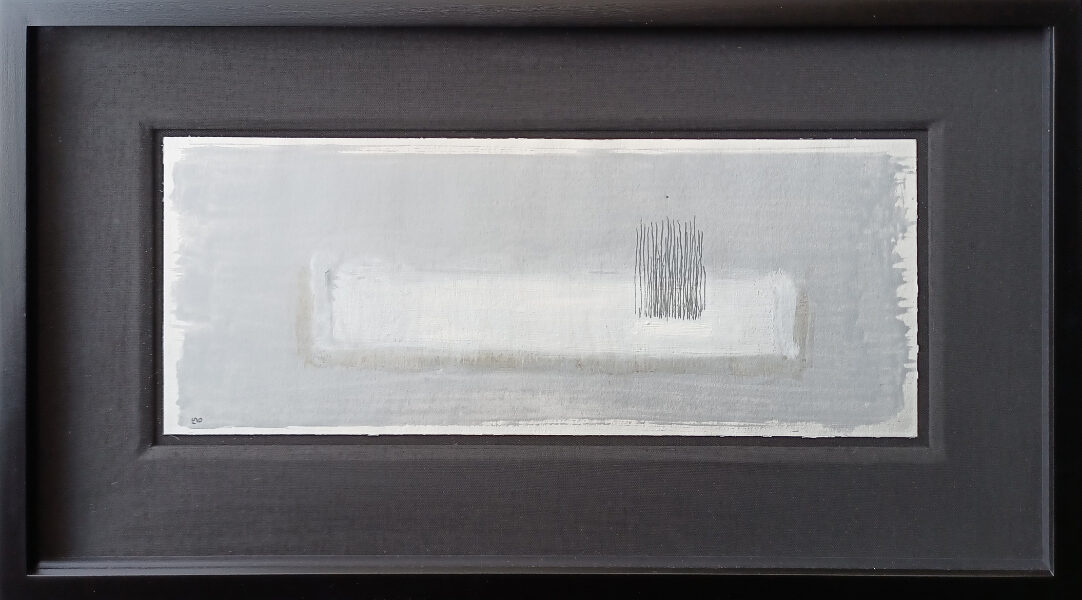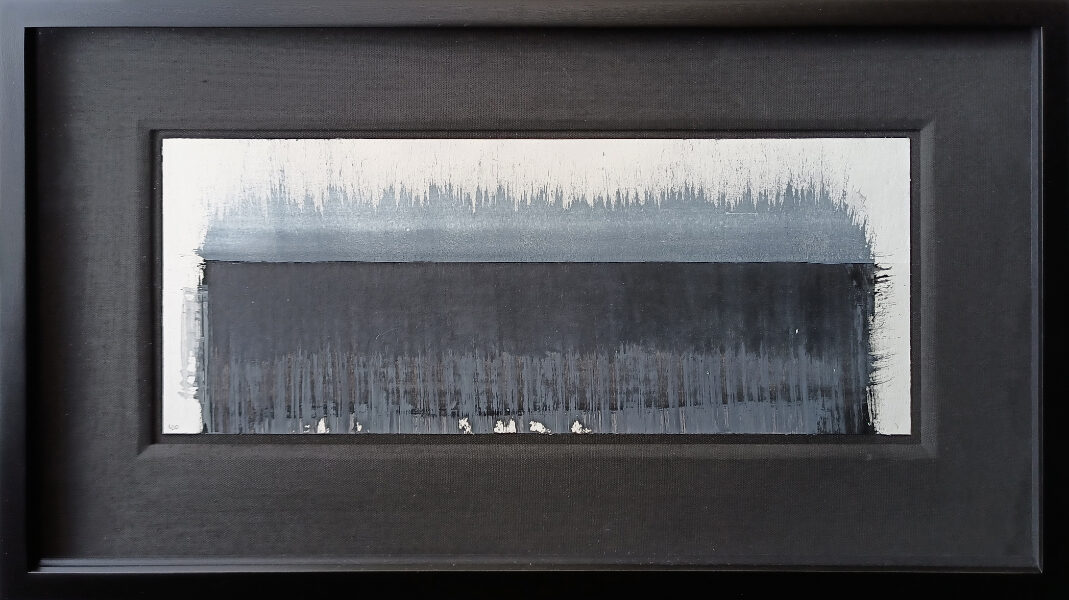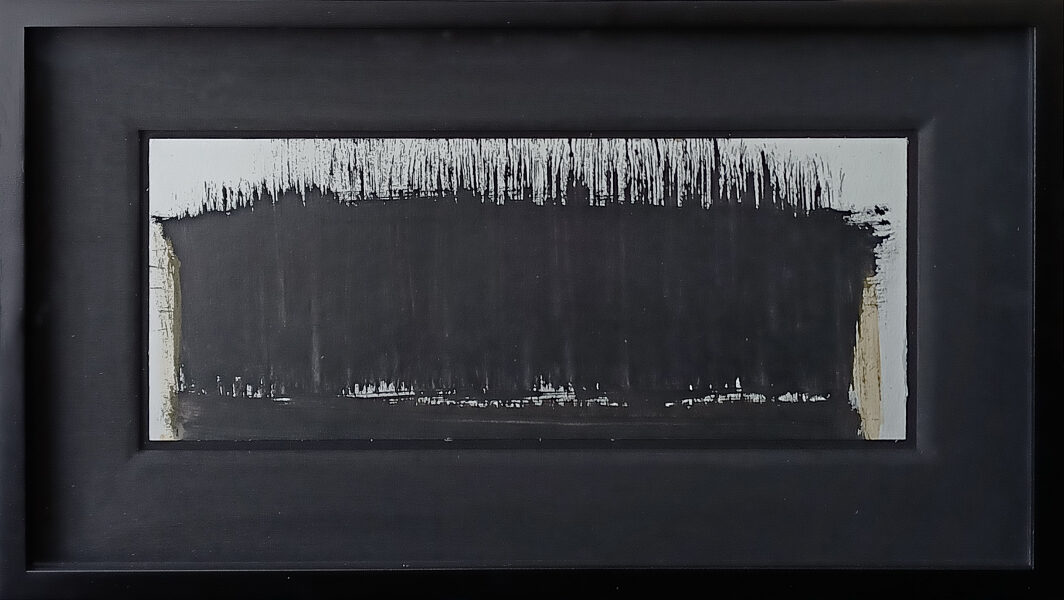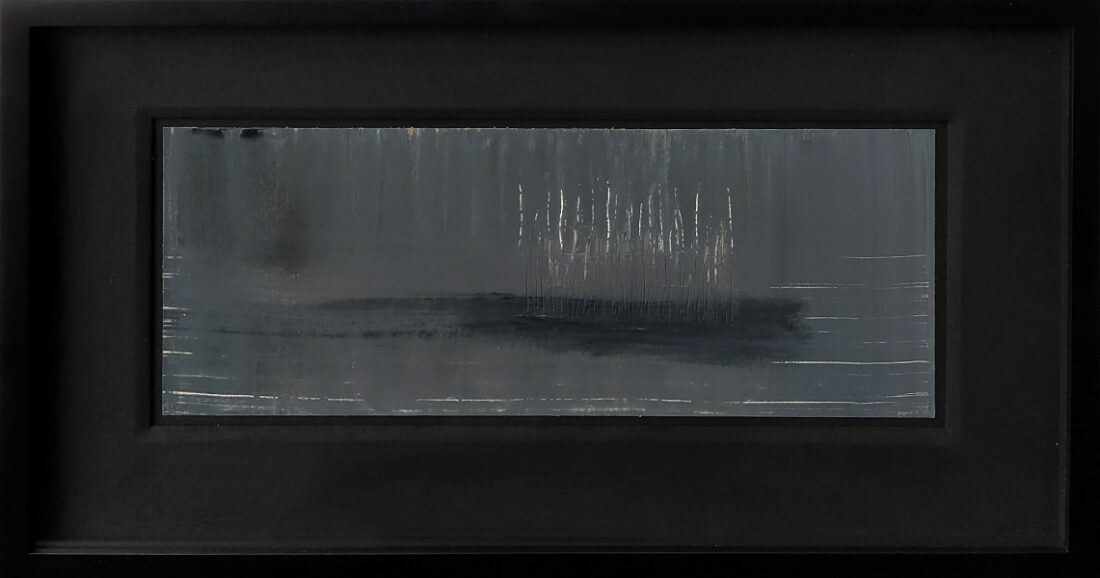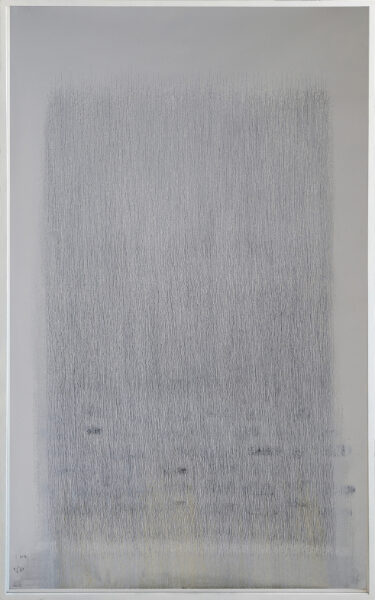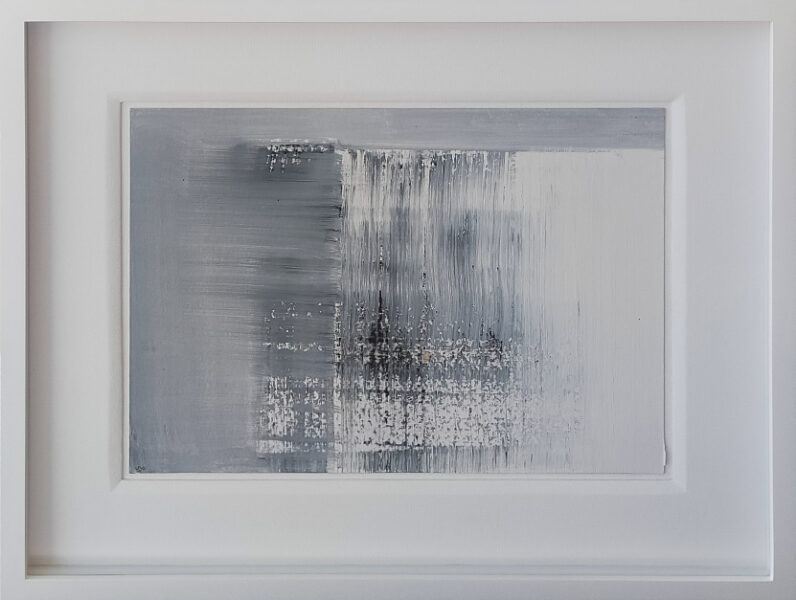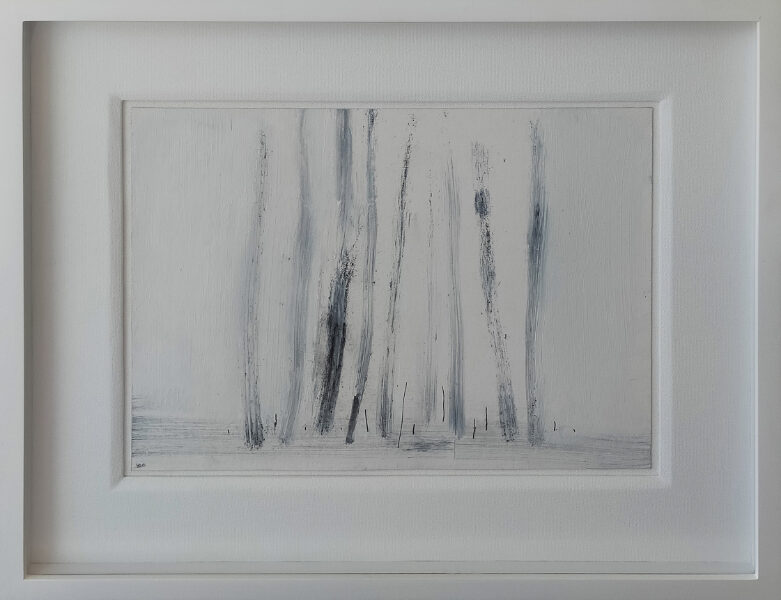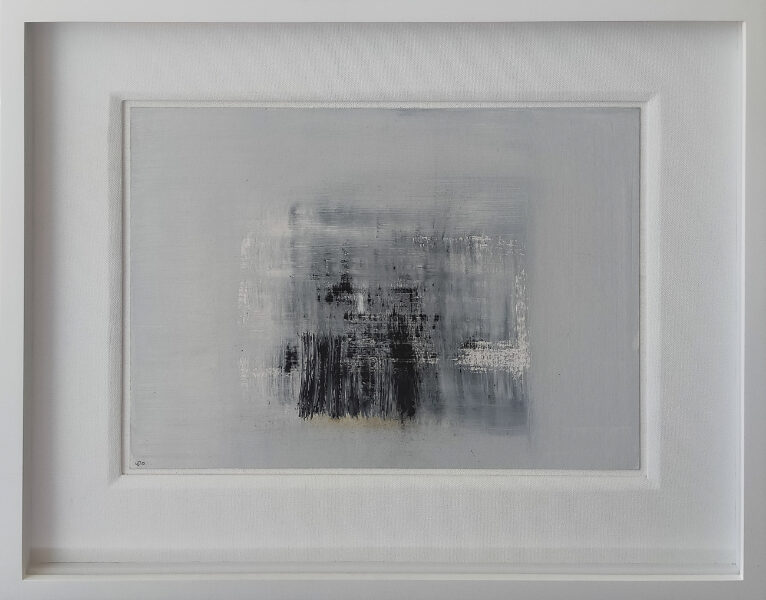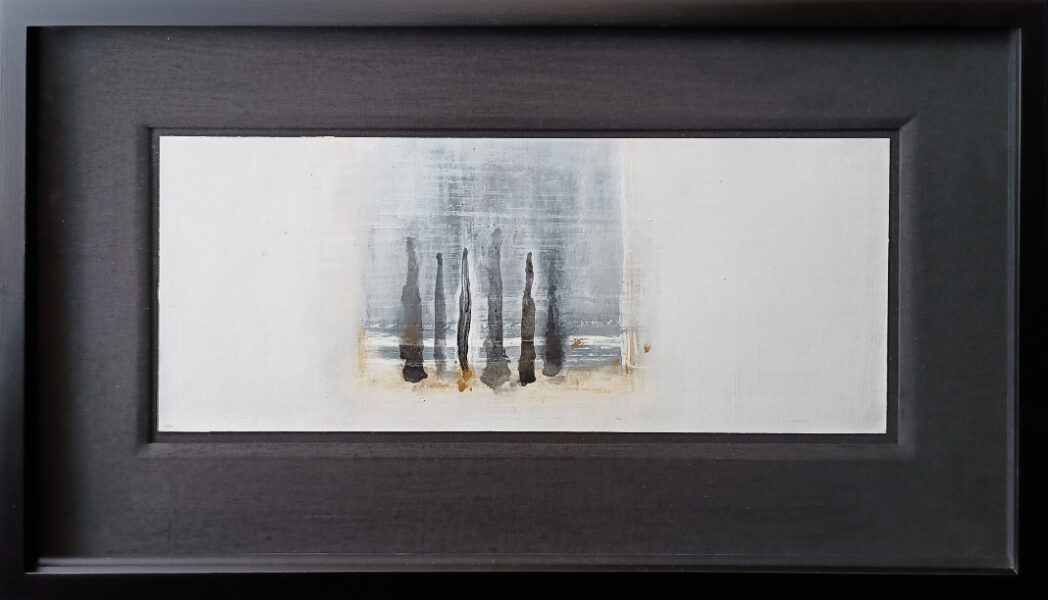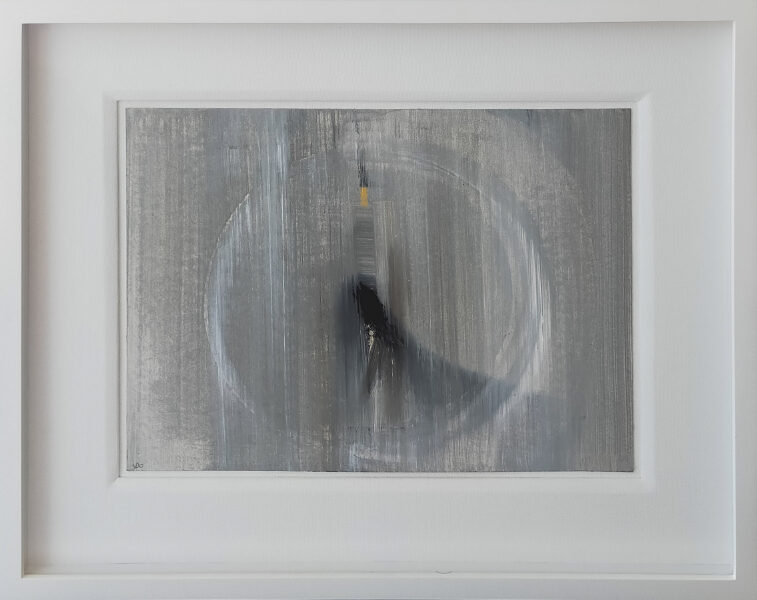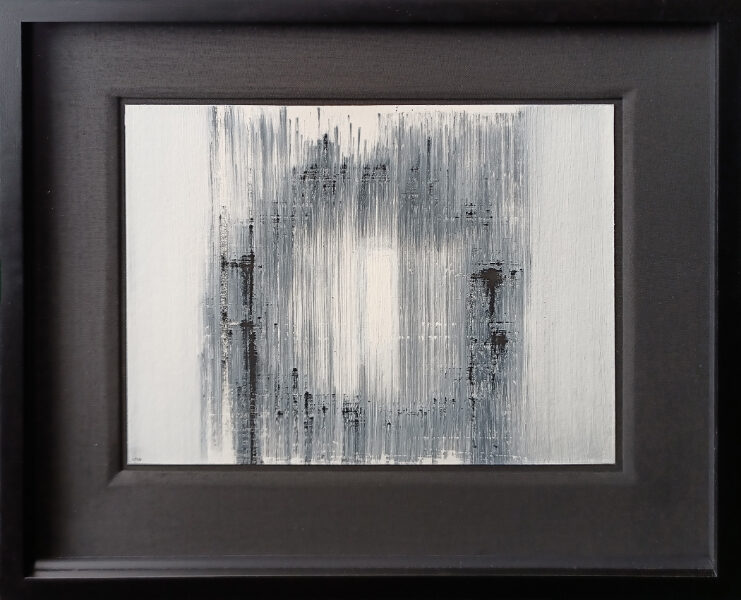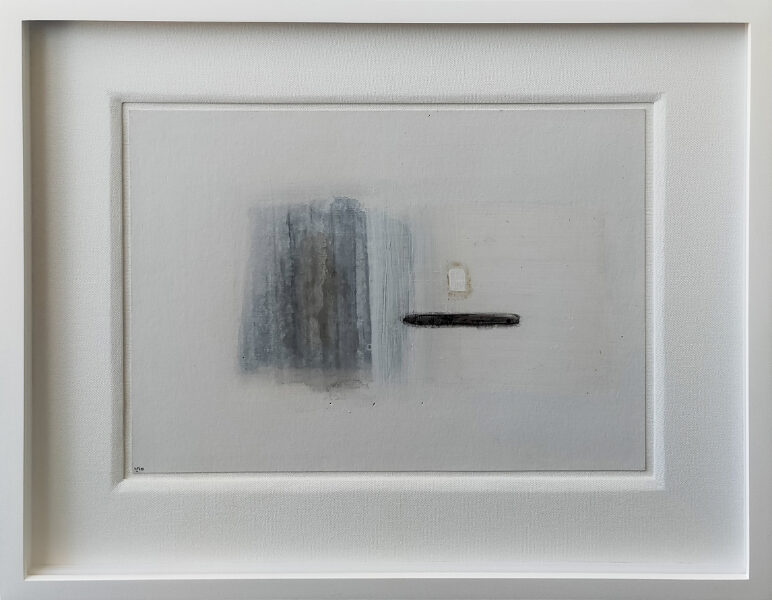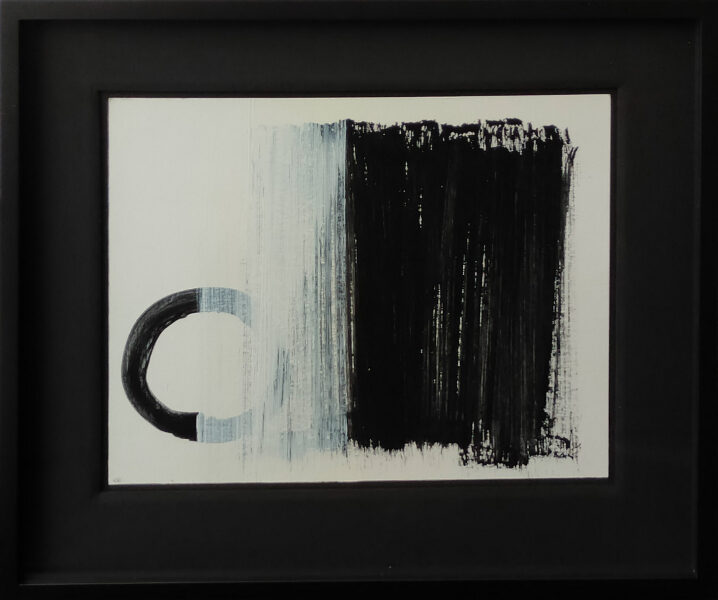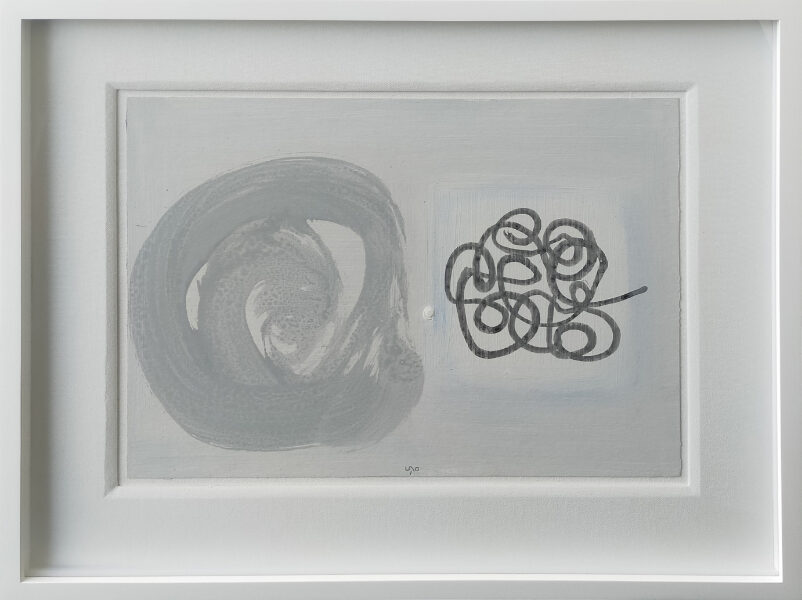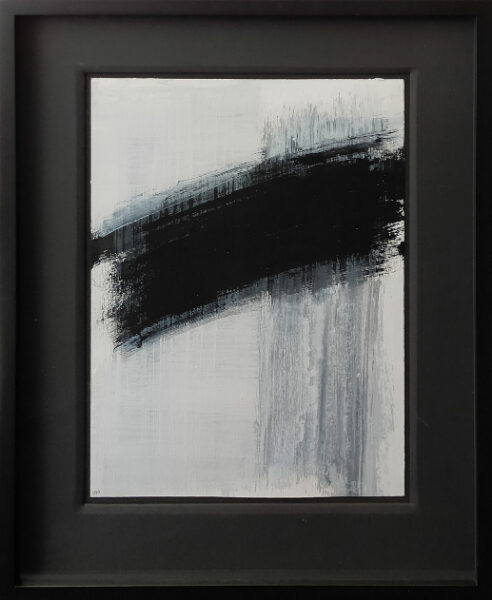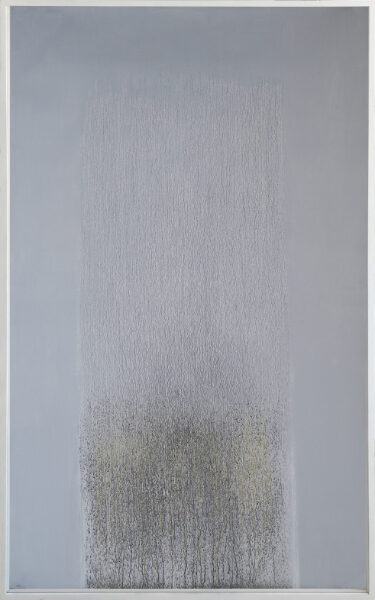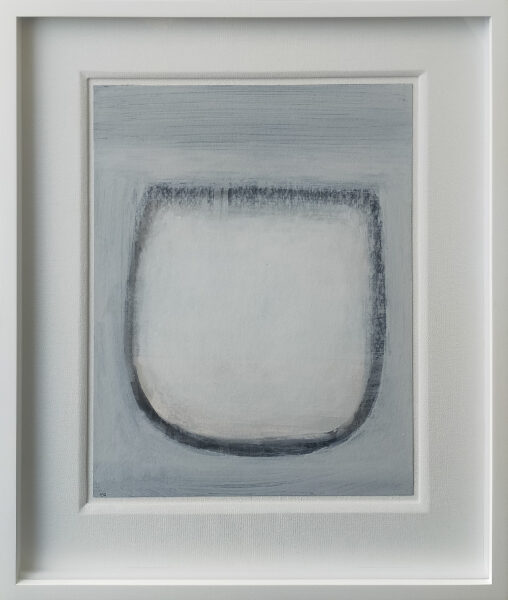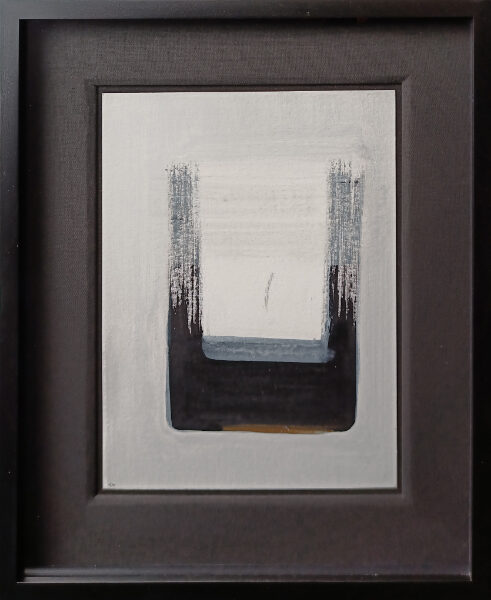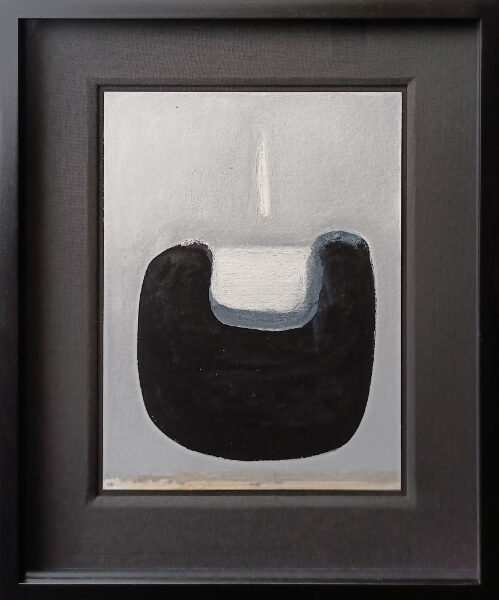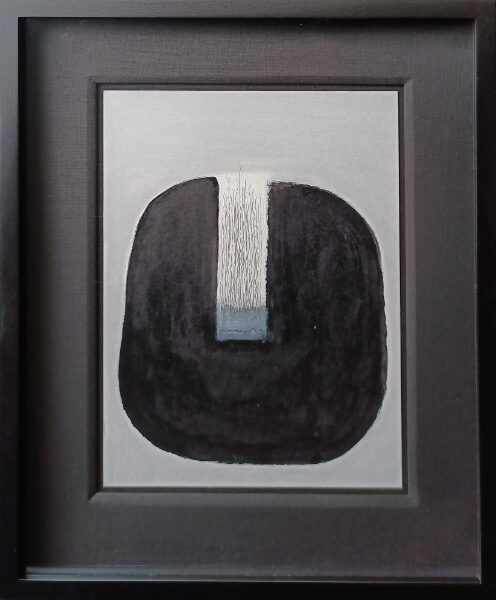
LAO LIANBEN: MARKING TIME, MAKING TIME IN SILENCE
The restrictions set by the global pandemic curbed what was already a simple and rudimentary lifestyle for Lao Lianben. Admittedly he has shunned away from the local art scene years earlier, preferring to visit exhibitions after opening fanfares. He intimates that even before the pandemic hit in March 2020 he was already on “lockdown mode”. But like all of us, the pandemic robbed him of the simple pleasures that we too often have taken for granted.
For eighteen months or so, Lao continued his regular “work from home” mode while everyone else struggled to pivot to this new routine. He learned to live with the health protocols and restrictions without sacrificing the one thing he had control over — his creative practice. His studio time helped him pass the day, oblivious to the disruption worldwide, at least for a few hours. He made sure to work almost every day and accumulated over 140 works on paper, rendered in acrylic, pencil, charcoal, and ink — materials he is most proficient in. These works revisit the many series Lao had explored in the past years, although this time smaller in scale and on paper. Strict health protocols and isolation forced him to work with materials that did not require him to depend on the services of assistants and carpenters.
Through Buddhist Lens
Anyone familiar with this artist’s body of works would immediately associate them with attributes of being spiritual and meditative, often allied with the practices of Buddhism and Taoism. Although Lao is not affiliated to any of these religious practices, he acknowledges that he is drawn to the views and simplicity of life espoused particularly by Buddhism. In a recent text message exchange, he notes:
“I am not a practicing Buddhist but I am so inspired by their ways and outlook in life, sometimes I think I really feel it in my work. Looking at Buddha inspired me to invent feelings for my paintings, meditative quiet cannot be penetrated, serene but all the power inside.”
Perhaps it is not so much as “to invent” feelings. Rather Lao may have been referring more to his capacity to understand and manage emotions that enrich his art practice. The Buddhist lens offers constructive ways of working with our emotions. Judith Simmer-Brown explains that “emotions are experiences that are not just thoughts; they have some kind of color and texture, which we try to work with directly when they’re painful.”[1] This idea directly relates to dukkha, one of Buddhism’s “Noble Truths”. Often translated as “life is suffering”, it basically promotes acceptance in the face of strife. “Illness, heartbreak, loss, disappointment, and frustration are parts of life that can be mitigated by practicing “non-attachment.”[2]
Buddhism recommends the practice of mindfulness, that is, developing self-understanding, self-observation, and insight which can be achieved through meditation. Lao may have discovered his own path to “meditative quiet” through his process and a variety of repetitive strokes and gestures. He is able to free “very powerful creative energy” of emotions through his works that we, as viewers also experience.
Buddhism also espouses the “Noble Truths” of anitya — life is in constant flux, and anatma — the self is constantly changing. Acknowledging these transitory states helps us appreciate the present; our memories, thoughts and personal narratives change over time. With impermanence, anything is possible.[3]
These notions of constant change and impermanence are also ever-present in Lao’s works. His seemingly minimalist works are far from being tranquil. His representations of water, a pond, and a garden may seem sparse but are evocative of flowing movement and transformation. The Tryst series are also expressive of constant movement and emotional shifts. Lao achieves this through his unconventional use of conventional materials. He employs acrylic, ink, graphite, and charcoal using painterly and gestural strokes, wavy linear gestures, and stippling pigments. Works rendered in layers of different medium may have been intentional or were a product of his attempts to resolve what was yesterday’s unresolved.
Buddha and the Bowl
Lao’s more representational series possess the same minimalist quality found in his abstract works. His renderings of stones, Buddha, begging bowls, vessels, and tables focus on the power of simplicity — that is, in form, gesture, and in one’s way of life. The Buddha — in meditative pose, asleep, or even lifeless — is always in a state of internal equanimity achieved through clarity of form and context. Yet the artist renders them with rugged texture suggesting some degree of movement. Buddha’s table or a vessel is unostentatious yet filled incense sticks or candles as a sensory way to sanctify space.
The series depicting begging bowls directly reveals Lao’s respect for the austere life Buddhist monks lead, as he recalls from visits to Taiwan. A begging monk acknowledges how the bowl defines the grace and blessings one receives each day and that should be enough. Lao’s begging bowls are similarly austere in shape and are also laboriously rendered in layers of acrylic of different tones, textures, and viscosity. He eventually achieves the comparable finish and polish, albeit on paper.
Lao’s new works on paper also include the series depicting the symbol of enso or the circle of togetherness, a sacred symbol in Zen Buddhism and a common subject in Japanese calligraphy. Often appearing as a misshapen circle, it symbolizes “the beauty of imperfection, the art of letting go of expectations, the circle of life, and connection. The enso is a manifestation of the artist at the moment of creation and the acceptance of our innermost self.”[4] It is evident that Lao has found the path to his innermost self.
At the height of the pandemic, art making has given Lao a means of expression and release and, most importantly, a place of solace. Instead of lingering over the anxieties and feelings of uncertainty, he marked each day with productive studio time. But beyond his art practice, the years of developing an understanding for Buddhism has prepared him to subsist and endure through the pandemic. Marking time, although begets idleness, was perhaps a necessary phase to reach that state of making time for his art and his life, one day at a time.
MVTHerrera
December 2021
[1] https://www.lionsroar.com/forum-how-to-work-with-emotions/ accessed 27 Dec 2021
[2] https://www.mindbodygreen.com/0-15397/3-buddhist-beliefs-that-will-rock-your-world-and-make-you-much-happier.html accessed 27 Dec 2021
[3] https://www.mindbodygreen.com/0-15397/3-buddhist-beliefs-that-will-rock-your-world-and-make-you-much-happier.html accessed 27 Dec 2021
[4] https://ensotherapy.co/enso-story, accessed 29 Nov 2021
Works
Documentation
